- International edition
- Australia edition
- Europe edition
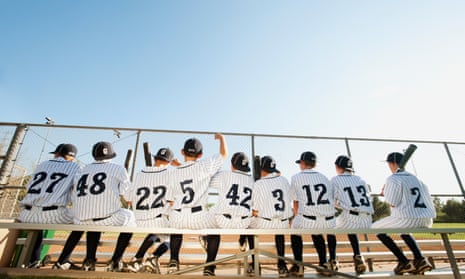

Travel baseball: a world where eight-year-olds are treated like pros
Swearing in the stands, long days of travel and night games. Sometimes junior baseball looks more like the big leagues
A baseball player strikes out. Disappointed, he turns to the stands where he makes eye contact with a man who yells, “ WHAT A WASTE OF A SPACE.” The player slowly walks back to the dugout, his head hung low, a routine he seems familiar with. He is isn’t a major league superstar like Anthony Rendon, George Springer or Mike Trout, accustomed to the wrath of impatient fans. He is an eight-year-old boy and the disgusted fan is his father who, based on his body language, might as well have yelled, “What a waste of a life.”
This happened a month ago in a midst of an under-nine tournament as we waited for my son’s game, which happened to be against the kid with the angry father. I wanted to hug that kid or at least compliment him in front of his dad. That wasn’t necessary. His team demolished ours and the boy walked away with his father, who looked a little less incensed than he had a couple of hours prior.
The night before, I learned about a parent from a different team. He wore a shirt that read, “FUCK OFF”, and took a swing at a parent from our team for politely pointing out the inappropriateness of his attire. This was a youth baseball tournament sprinkled with players as young as six. Fuck Off Guy was given a proverbial Fuck Off when he was escorted out of the complex, a baseball Disneyland called Big League Dreams that hosts weekly tournaments and makes gobs of money in the process. There are beautiful fields and two bars. Apparently watching your kid play sports is better when buzzed.
That weekend was our first full-scale experience on the youth baseball travel circuit, a baseball business that presents kids as young as seven with a chance to compete at a theoretically higher level of competition by participating in regular tournaments. A key part of the US’s $15bn youth sports industry, these travel teams often come with hefty price tags that automatically excludes many families. It was a contrast to the league we had played in the previous summer. There, my son was selected to a team of the best players in our local baseball league. We participated in three tournaments that were sweet, community-based annual events. Kids ran the snack shacks, there were trophy presentations for the winners and plenty of local pride was on show. The whole thing was so innocent it felt like it was played to the soundtrack of John Fogerty’s Centerfield .
A far different animal, last month’s tournament was just one of many for a company that runs tournaments every weekend all year long, trying to squeeze in as many teams (and their entry fees) as their permits allow. Our tournament involved 10 teams, and we started one game after 8.30pm. By the time my son came in to pitch, it was 10.17pm, 107 minutes past his bedtime.
There is no parenting manual that differentiates between the glorious aspects of youth baseball and the predatory ones. No one can fully explain how youth sports can monopolize your world until you’re in it. And, for better or for worse, we’re officially in it.
My eight-year-old son is a multi-sport athlete. It’s ridiculous to refer to him as an “athlete” since he’s really just a third-grader obsessed with body-part jokes and his fantasy football team. But he plays soccer and baseball competitively and he’s good enough at the latter that he’ll probably be playing for the foreseeable future.
I’m one of those parents who is not only interested in her kids’ endeavors, I want to participate unless they tell me to get lost. So despite the fact that I never played softball or baseball as a kid and eschewed most organized sports for the performing arts, I have transformed into a hardcore baseball mom. I learned proper glove mechanics, the throwing motion and youth baseball rules so I could participate in the thing he loves most, which thankfully is baseball and not base jumping. Just yesterday, my son made my heart burst when he said, “you’re awesome at baseball … for a mom,” which was almost as gratifying as the follow-up, “I love that you play baseball with me.” It seems logical but I can’t emphasize enough the magic of interacting with your kid on his turf.
Committing to a travel team requires drastically altering your life. Multiple practices a week are just the start. If you have a two-sport athlete like I do, it means tournaments every weekend, hotels, expenses – something we are lucky enough to be able to afford – and making sure siblings are sated. When the stars align like they have for us and the parents are amazing and your kid becomes instant friends with his teammates, you indulge in everything because you suddenly have a baseball family.
If my kid decided to walk away from travel baseball tomorrow, I would be devastated, but also aware that my number one job is to support my children. Not every kid has that luxury. I polled several friends with sporty kids on the travel circuit, and many have been witness to parents who seem to care more about youth baseball than their kids do. Some are simply trying to relive their glory days (or construct glory they never had); other parents from certain socio-economic backgrounds view a baseball as their child’s only viable path to college and see youth baseball as a training ground for a scholarship. No wonder, for some, every game feels like life or death. This of course can lead to detrimental team dynamics as parents gossip or aggressively lobby coaches for playing time. I can’t even imagine that type of in-fighting among our baseball crew, but our kids are only eight and nine. Who knows if in five years one of us will go postal if a coach makes a decision that we feel unfairly harms our kid’s trajectory?
For now, I am laser-focused on protecting my son against the outside forces who care about what they can squeeze out of him. Last summer, my son was invited to play on a travel team – he could even make it without a tryout, the coach said. When we politely declined citing concerns about burnout, the coach said my son is the type who will never burn out because he loves baseball so much. He was pleasant about the whole thing and we eventually joined his fall travel team, largely because my son likes him and a ton of his friends signed up. But I’m concerned about fending off future invites.
The future scares me. I don’t want my son’s joy to wane. But I know there will be more recruiting, more join-this-or-that-or else-your kid may fall behind sales methods.
I dropped my five-year-old off at an after-school class a few weeks ago and had a coach ask me if my eight-year-old would be participating in their “winter workouts”. I said no, that we didn’t want to burn him out. The coach looked at me like I was torturing my child, and simply uttered, “I hope he doesn’t get too rusty.” I smiled on the outside and rolled my eyes on the inside. Then I left to pick up my kid and meet my husband at a local park where we all played catch for the next hour. Like we always do.
- Parents and parenting
Most viewed
Free webinar May 9: How to spot and stop a scam. Sign up now.
AARP daily Crossword Puzzle
Hotels with AARP discounts
Life Insurance
AARP Dental Insurance Plans
AARP MEMBERSHIP — $12 FOR YOUR FIRST YEAR WHEN YOU SIGN UP FOR AUTOMATIC RENEWAL
Get instant access to members-only products and hundreds of discounts, a free second membership, and a subscription to AARP the Magazine.
- right_container
Work & Jobs
Social Security
AARP en Español
- Membership & Benefits
- AARP Rewards
- AARP Rewards %{points}%
Conditions & Treatments
Drugs & Supplements
Health Care & Coverage
Health Benefits

Staying Fit
Your Personalized Guide to Fitness

AARP Hearing Center
Ways To Improve Your Hearing

Brain Health Resources
Tools and Explainers on Brain Health

A Retreat For Those Struggling
Scams & Fraud
Personal Finance
Money Benefits

View and Report Scams in Your Area

AARP Foundation Tax-Aide
Free Tax Preparation Assistance

AARP Money Map
Get Your Finances Back on Track

How to Protect What You Collect
Small Business
Age Discrimination

Flexible Work
Freelance Jobs You Can Do From Home

AARP Skills Builder
Online Courses to Boost Your Career

31 Great Ways to Boost Your Career

ON-DEMAND WEBINARS
Tips to Enhance Your Job Search

Get More out of Your Benefits

When to Start Taking Social Security

10 Top Social Security FAQs

Social Security Benefits Calculator

Medicare Made Easy
Original vs. Medicare Advantage

Enrollment Guide
Step-by-Step Tool for First-Timers

Prescription Drugs
9 Biggest Changes Under New Rx Law

Medicare FAQs
Quick Answers to Your Top Questions
Care at Home
Financial & Legal
Life Balance

LONG-TERM CARE
Understanding Basics of LTC Insurance

State Guides
Assistance and Services in Your Area

Prepare to Care Guides
How to Develop a Caregiving Plan

End of Life
How to Cope With Grief, Loss
Recently Played
Word & Trivia
Atari® & Retro
Members Only
Staying Sharp
Mobile Apps
More About Games

Right Again! Trivia

Right Again! Trivia – Sports

Atari® Video Games

Throwback Thursday Crossword
Travel Tips
Vacation Ideas
Destinations
Travel Benefits

Beach vacation ideas
Vacations for Sun and Fun

Plan Ahead for Tourist Taxes

AARP City Guide
Discover Seattle

25 Ways to Save on Your Vacation
Entertainment & Style
Family & Relationships
Personal Tech
Home & Living
Celebrities
Beauty & Style

TV for Grownups
Best Reality TV Shows for Grownups

Robert De Niro Reflects on His Life

Looking Back
50 World Changers Turning 50

Sex & Dating
Spice Up Your Love Life

Navigate All Kinds of Connections

Life & Home
Couple Creates Their Forever Home

Store Medical Records on Your Phone?

Maximize the Life of Your Phone Battery

Virtual Community Center
Join Free Tech Help Events

Create a Hygge Haven

Soups to Comfort Your Soul

Your Ultimate Guide to Mulching
Driver Safety
Maintenance & Safety
Trends & Technology

AARP Smart Guide
How to Keep Your Car Running

We Need To Talk
Assess Your Loved One's Driving Skills

AARP Smart Driver Course

Building Resilience in Difficult Times

Tips for Finding Your Calm

Weight Loss After 50 Challenge

Cautionary Tales of Today's Biggest Scams

7 Top Podcasts for Armchair Travelers

Jean Chatzky: ‘Closing the Savings Gap’

Quick Digest of Today's Top News

AARP Top Tips for Navigating Life

Get Moving With Our Workout Series
You are now leaving AARP.org and going to a website that is not operated by AARP. A different privacy policy and terms of service will apply.
Go to Series Main Page
Play Ball! The 12 Best Baseball Documentaries to Stream Now
From ken burns and spike lee to espn’s new series on derek jeter, this is an all-star lineup you won’t want to miss.
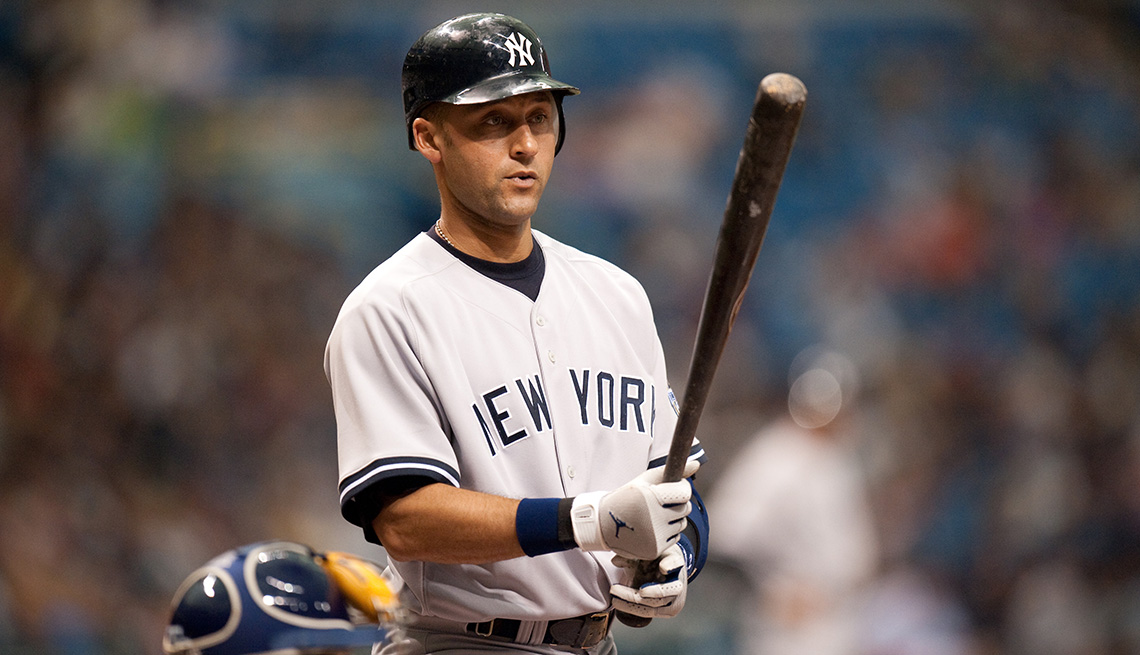
Nicholas DeRenzo,
The 2023 Major League Baseball season kicks off on March 30, and fans will notice a few updates to their beloved game, including a new 30-second pitch clock and larger 18-inch (instead of 15-inch) bases. It’s as good a time as ever to brush up on the history of America’s pastime, which happens to be a favorite subject of filmmakers. Here are 12 baseball-themed documentaries to add to your starting streaming lineup. And if you’re looking for some extra innings’ worth of content, we’ve put together a watch list of episodes about America’s favorite pastime from ESPN’s award-winning docuseries 30 for 30 . Play — or, rather, watch — ball!
Reggie (2023)
Reggie Jackson, the baseball Hall of Famer known as Mr. October, is finally getting his due. This revealing new Prime Video Original documentary explores the life and career of the right fielder whose clutch hitting led to five World Series titles, for the Oakland A’s and the New York Yankees.
Watch it: Reggie, on Prime Video

AARP Membership — $12 for your first year when you sign up for Automatic Renewal
Facing Nolan (2022)
Hall of Fame pitcher Nolan Ryan, 76, played professionally for 27 seasons, tying the record for the longest career in MLB history. Along the way, he racked up a series of impressive records, including the most no-hitters (seven) and the most strikeouts (5,714). He also played a game with a bloody jersey after getting smacked in the face with a ball, raised cattle during the off-season and struck out a whopping seven pairs of fathers and sons. In other words, his career provides excellent fodder for producer Bradley Jackson’s feature-film directorial debut, much of which is told from the point of view of the players who faced off against the Ryan Express.
Fun fact: Thanks to his incredibly long career — which stretched from the LBJ to the Clinton administrations — Ryan also holds many dubious records, including the most wild pitches and the most grand slams and stolen bases given up.
Watch it: Facing Nolan, on Apple TV , Netflix , Prime Video
The Captain (2022)
ESPN Films has emerged as one of the most celebrated producers of documentaries in recent years, with O.J.: Made in America and The Last Dance both earning critical acclaim and a slew of awards, including an Oscar, a Peabody Award and three Emmys between them. Last year, the studio premiered its new seven-part documentary series The Captain , about New York Yankees great Derek Jeter, who was recently enshrined in the Baseball Hall of Fame. Executive produced by Spike Lee, 66, the show features candid interviews with Jeter, his family and his former teammates and coaches, such as Roger Clemens (60), Mariano Rivera (53), Darryl Strawberry (61) and Joe Torre (82).
Fun fact: A team hasn’t won back-to-back World Series since the 2000 Yankees, which pulled off an impressive three-peat.
Watch it: The Captain on Apple TV , Hulu
Baseball: A Ken Burns Documentary (1994)
Burns , 69, brought his meticulous research and encyclopedic scope to this 1994 docuseries, which charts the rise of baseball over the course of nine “innings,” or episodes. Featuring interviews with the likes of Billy Crystal (75), Doris Kearns Goodwin (80) and Studs Terkel, the show focuses on subjects such as the 1919 Black Sox scandal, the Negro Leagues and the groundbreaking career of Jackie Robinson, who later got his own Ken Burns documentary in 2016. In 2010, Burns introduced a “tenth inning” to the series, a two-part, four-hour special that covered the 1998 home run chase, the steroid scandal and the ways in which baseball helped America heal after 9/11.
Fun fact: Moses Fleetwood Walker became the first Black player in the major leagues in 1884 — six decades before Jackie Robinson .
Watch it: Baseball: A Ken Burns Documentary, on Apple TV , Prime Video

AARP NEWSLETTERS

%{ newsLetterPromoText }%
%{ description }%
Privacy Policy
ARTICLE CONTINUES AFTER ADVERTISEMENT
Fastball (2015)
Kevin Costner , 68, narrates this in-depth (and surprisingly geeky!) look at the speediest pitching style, which takes only 396 milliseconds to reach the batter. Dozens of former players — including Derek Jeter and Hank Aaron — weigh in on the fastest pitchers they ever encountered, as they break down the art (and science) of throwing and hitting a fastball. While then–Cincinnati Red Aroldis Chapman is on record for the fastest radar-verified pitch at 105.1 mph in 2010, the documentary raises the question of whether a past pitcher, such as Nolan Ryan, 76, may have ever bested him, and experts turn to physics for the answer.
$20 off a Walmart+ annual membership
Fun fact: According to scientists in the film, we may have reached the limit of how fast a human can throw a ball. As Sports Illustrated ’s Ali Fenwick wrote about the film, “Any faster and the force required would literally rip the pitcher’s arm off.”
Watch it: Fastball, on Apple TV , Peacock , Prime Video
Hardball: The Girls of Summer (2019)
This inspiring documentary follows four of America’s top female baseball — not softball! — players, as they work their way toward the Women’s Baseball World Cup in South Korea. But it also turns a much wider lens on the role of women in the sport, featuring such towering (if oft-forgotten) figures as Jackie Mitchell, who struck out Babe Ruth, and Maria Pepe, whose family sued Little League Baseball for gender discrimination after girls were barred from playing in the 1950s.
Fun fact: Milkmaids in 15th-century England invented a precursor to baseball called stoolball, in which they set their milking stools in a circle and used them as early bases.
Watch it: Hardball: The Girls of Summer, on Apple TV , Peacock , Prime Video
No No: A Dockumentary (2014)
The list of MLB players who have pitched no-hitters is a very small group, but there’s an even more exclusive club: those who did so while on LSD! Pittsburgh Pirate Dock Ellis battled addiction issues throughout much of his life, and he claimed to be tripping on the psychedelic during his impressive no-hitter against the San Diego Padres on June 12, 1970. The game became such a pop-cultural touchstone that it was later referenced in a number of songs, books and short films. Ellis would go on to devote his life to counseling others with substance abuse issues.
Fun fact: The 1971 Pirates were the first team in MLB history with an all-minority starting lineup of Black and Latino players, including Roberto Clemente and Willie Stargell.
Watch it: No No: A Dockumentary on Apple TV , Prime Video
Screwball (2018)
South Florida steroid peddler Tony Bosch is responsible for one of the biggest scandals in major-league history: He’s the man who prescribed performance-enhancing drugs to the likes of Alex Rodriguez and Manny Ramirez (50) from his strip mall “health clinic” in Coral Gables. In this surprisingly funny true-crime docudrama by Cocaine Cowboys director Billy Corben, Bosch operates like a character out of an Elmore Leonard or Carl Hiaasen novel, surrounded by mob connections, drugs and corruption. In a surreal twist, the major figures from the scandal are played by child actors, who lip-sync their way through conversations and confessionals.
Fun fact: A-Rod was suspended for the entire 2014 season after his name showed up on the list of athletes using PEDs.
Watch it: Screwball, on Apple TV , Prime Video

AARP Membership — Memorial Day Sale
LIMITED TIME OFFER. Join AARP for just $9 per year when you sign up for a 5-year term. Join now and get a FREE GIFT!
The Battered Bastards of Baseball (2014)
In 1973, actor Bing Russell created the Portland Mavericks, an independent minor-league team that played in the Class A-Short Season Northwest League and wasn’t affiliated with any major-league team. Though the Mavericks were made up mainly of misfits and has-beens, they had winning seasons for all five years of their existence, before they disbanded in 1978. Bing’s son Kurt, 72 — yes, that Kurt Russell! — played for the team in its inaugural season, and the documentary was directed by two of Bing’s grandsons, Chapman and Maclain Way, who also helmed the Emmy-winning Netflix documentary Wild Wild Country.
Fun fact: Another of Bing Russell’s grandsons is MLB first baseman Matt Franco, 53.
Watch it: The Battered Bastards of Baseball on Netflix
A Long Way From Home: The Untold Story of Baseball’s Desegregation (2018)
Jackie Robinson broke baseball’s color barrier in 1947 when he played his first game with the Brooklyn Dodgers, but that was only the beginning of the long road to the desegregation of pro sports. Following his brave lead, a new generation of Black and Latino players toiled away on farm teams in remote towns across the country, some in the Jim Crow South, as they worked their way up to the majors. The documentary features interviews with such players as Mudcat Grant, Orlando Cepeda (85) and Deacon Jones (88).
Fun fact: The Boston Red Sox were the last major-league team to integrate when they added Pumpsie Green to the lineup in 1959.
Watch it: A Long Way From Home: The Untold Story of Baseball’s Desegregation, on Apple TV , Prime Video
Heading Home: The Tale of Team Israel (2018)
This 2018 documentary follows the Cinderella story of Team Israel — which ESPN compared to the Jamaican Olympic bobsled team — on their unlikely journey to the 2017 World Baseball Classic. Ranked 41st in the world, the underdog squad comprised players who were either Israeli citizens or Jewish Americans eligible for citizenship under the country’s Law of Return. The roster included such MLB players as Sam Fuld, Ike Davis and Cody Decker, who famously introduced Team Israel’s mascot, the Mensch on a Bench.
Fun fact: In the film, the teammates pose with a mural of Sandy Koufax, 87, the legendary Jewish player who skipped Game 1 of the 1965 World Series because it fell on the holiest day in Judaism, Yom Kippur.
Watch it: Heading Home: The Tale of Team Israel on Apple TV , Prime Video
Ballplayer: Pelotero (2011)
Narrated by John Leguizamo, 62, this gripping and gritty documentary offers a stark look at the world of baseball recruitment in the Dominican Republic, a system where corruption runs rampant. “Forget feel-good boys-of-summer tales,” writes New York Times critic Neil Genzlinger. “This film shows a shady business in which scouts and the teams they represent try to manipulate teenage players, and to some extent the players do some manipulating of their own.” Our main entry points into this world are the 15-year-old players Miguel Ángel Sanó and Jean Carlos Batista.
Fun fact: As of 2021, Dominican-born players made up more than 11 percent of the MLB.
Watch it: Ballplayer: Pelotero, on Prime Video , Tubi
The Essential ‘30 for 30’ Episodes About America’s Favorite Pastime
Since the docuseries premiered in 2009, ESPN’s 30 for 30 has shed light on some of the most interesting stories in baseball history. Here is a list of episodes that will take you out to the ball game — and teach you something interesting in the process! You can stream episodes on Apple TV , ESPN+ , Hulu and Prime Video .
- Jordan Rides the Bus (2010), about Michael Jordan’s retirement from basketball and brief foray into minor-league baseball.
- Little Big Men (2010), about the Kirkland National Little League’s historic upset victory at the 1982 Little League World Series.
- The House of Steinbrenner (2010), about the legacy of George Steinbrenner’s ownership of the New York Yankees.
- Four Days in October (2010), about the Boston Red Sox’s comeback win against the Yankees in the 2004 American League Championship Series.
- Fernando Nation (2010), about Fernando Valenzuela’s 1981 arrival with the L.A. Dodgers.
- Catching Hell (2011), about Steve Bartman, the fan who tried to catch a foul ball during the 2003 NLCS and was scapegoated for the Chicago Cubs’ continued championship drought.
- Goose (2012), about Reece “Goose” Tatum, who played in the Negro Leagues and then became a Harlem Globetrotter.
- You Don’t Know Bo (2012), about two-sport wonder Bo Jackson.
- The Day the Series Stopped (2014), about the 1989 Loma Prieta earthquake, which started just before Game 3 of the World Series.
- Brothers in Exile (2014), about half-brothers Liván and Orlando Hernández, who fled Cuba and became MLB pitchers.
- Doc & Darryl (2016), about the connection between Dwight “Doc” Gooden and Darryl Strawberry.
- Long Gone Summer (2020), about the controversial 1998 home run chase between Mark McGwire and Sammy Sosa.
- Once Upon a Time in Queens (2021), about the 1986 Mets, a team that’s often regarded as one of the best in MLB history.
Nicholas DeRenzo is a contributing writer who covers entertainment and travel. Previously he was executive editor of United Airlines’ Hemispheres magazine and his work has appeared in the New York Times, Conde Nast Traveler, Travel & Leisure, Sunset and New York magazine.
Discover AARP Members Only Access
Already a Member? Login

MORE FROM AARP
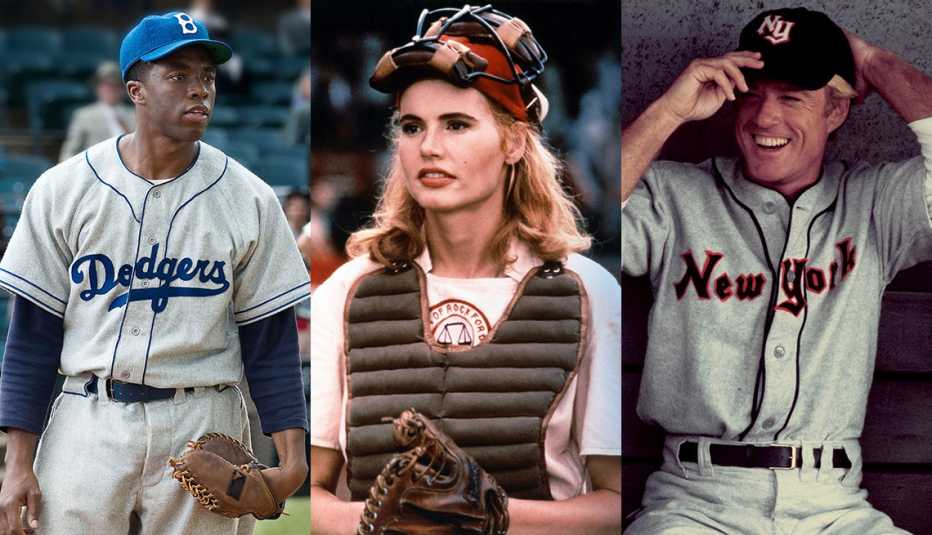
12 Great Baseball Movies to Stream Now
An all-star lineup of heartwarming films
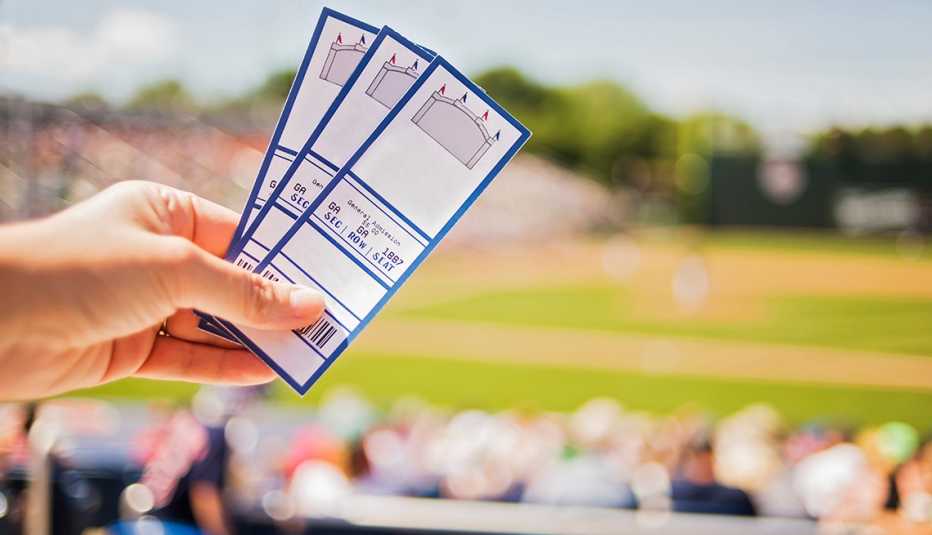
Play Ball! 7 Great Places for Baseball Fans to Retire
Consider these destinations for the love of the game
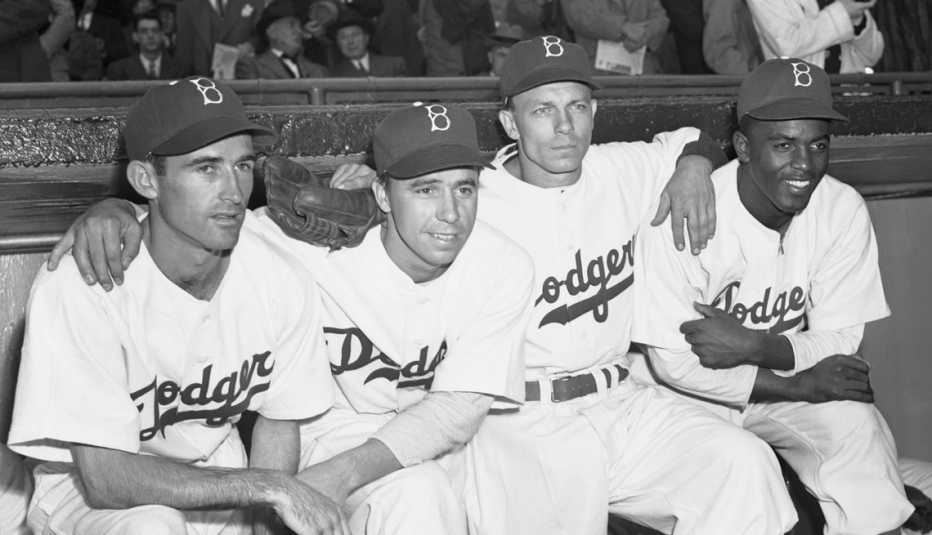
Top Baseball Museums Around the U.S.
6 spots where fans can revel in America's pastime, from Cooperstown to Denver
AARP VALUE &
MEMBER BENEFITS

Calm Sleep, Meditation & Relaxation App
30% off a Calm Premium annual subscription

AARP Fitness Center
Workout videos, tips and tricks to help you on your fitness journey

Hollywood.com
5% off all movie tickets

AARP® Staying Sharp®
Activities, recipes, challenges and more with full access to AARP Staying Sharp®
SAVE MONEY WITH THESE LIMITED-TIME OFFERS
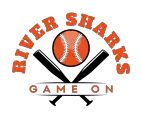
The 13 Best Baseball Documentaries
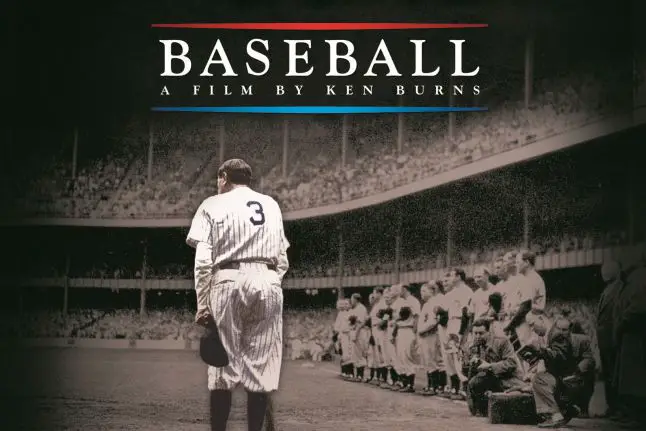
Great baseball documentaries come in many shapes and sizes. They can take a broad, historical view of the game, or focus on a single-player or event. They can tell the stories of the legends of the game, or of those forgotten by time.
These films can educate you, inspire you, amuse you, or cause you to question what you thought you knew. There have been so many excellent films about baseball that it was hard to narrow down the thirteen best baseball documentaries.
These baseball documentaries are sure to entertain fans of all ages.
The Best Baseball documentaries (and where you can watch them)
Here is a list of our favorite baseball documentaries and how you can get your hands on them.
My favorite Baseball documentary is Catching Hell. I love all of the ESPN 30 for 30 films, and Catching Hell is incredibly well done. However, all these films are great at diving into their topics.
Our Fav Baseball Documentaries
Ken Burns’ Baseball (1994)

Any list of the best baseball documentaries must include Ken Burns’ Baseball, a fascinating nine-part, 19-hour film on the history of baseball from its 19th-century origins up to 1990 (a 2010 addendum, aptly named the “Tenth Inning,” covers the 1990s and early 2000s). Burns covers nearly every significant event in baseball history and tells the stories of the people who have defined the game. Burns’ documentary is a must-watch for any baseball fan or anybody interested in American history. You can see the full price on Amazon here.
When It Was a Game (1991)
![travel baseball documentary When it Was a Game: The Complete Collection [Blu-ray]](https://m.media-amazon.com/images/I/51mJZA6MZfL.jpg)
So much of baseball’s past can only be seen in grainy black-and-white footage. But the When It Was a Game series brings baseball heroes from the 1930s through the 1960s to life using the brilliant color footage from home movies taken by players and fans. It shows game action, including the 1938 World Series, but its most exciting parts are close-ups of players warming up before the game, joking around in the dugout, making faces for the camera, or hanging around outside the ballpark in their healthy life. You can buy the DVD set on Amazon.
Ballplayer: Pelotero (2012)

Baseball is known as America’s pastime, but no country loves baseball more than the Dominican Republic. Baseball is a way of life there and kids dream of becoming the next Pedro Martinez and Vladimir Guerrero. Major league teams search the island for talent, and young players do everything they can to receive a contract. Ballplayer: Pelotero follows two 16-year-old Dominican players, including current Minnesota Twins All-Star Miguel Sano, as they prepare to sign with major league teams. The film shows how much corruption, lying, and lack of trust there is in the process of scouting and signing players. You can watch the movie on DVD, or on Amazon Prime.
No No: A Dockumentary (2014)

Dock Ellis was a colorful and fearless pitcher of the 1970s who is best remembered for pitching a no-hitter while—if you can believe him—high on the drug LSD. No No: A Dockumentary covers Ellis’ famous no-hitter, but it is more interested in what he did off the field. He was an outspoken advocate for racial justice during his career, and after his retirement, he became sober and became a counselor to help others beat their addictions. If you want to learn more about the movie, click here.
Brooklyn Dodgers: The Ghosts of Flatbush (2007)

So much has been written about the Brooklyn Dodgers—from their signing of Jackie Robinson to their many heartbreaks at the hands of their more prosperous neighbors, to their eventual move to Los Angeles—that it is difficult for a documentary to find new things to say. The Ghosts of Flatbush manages to do so as it interviews many Dodger fans who explain how the team, known lovingly as “Dem Bums,” was a representation of the multicultural Brooklyn of the 1940s and ‘50s.
Catching Hell (2011)
![travel baseball documentary ESPN Films - Catching Hell (Alex Gibney) [DVD]](https://m.media-amazon.com/images/I/51BQD6Ef3QL.jpg)
In the 2003 NLCS, with the Chicago Cubs closing in on their first World Series appearance in 58 years, Cubs fan Steve Bartman reached for a foul ball heading toward him, getting in the way the Cubs outfielder trying to make the catch. The Cubs went on to allow 8 runs that inning, losing the game and eventually the series.
Bartman was blamed for the loss and needed to go into hiding as he received death threats. Catching Hell interviews players, media members, and fans who were at the game.
Many regret how they reacted toward Bartman and believe that he was oppressed by the whole city for his honest mistake. One of ESPN’s acclaimed ’30 for 30′ series, Catching Hell is a personal favorite of mine. Check out the Amazon search for a DVD copy here.
Fastball (2015)

The fastball is baseball’s most common pitch, the only one thrown by every pitcher. You might think you already know everything there is to know about it, but Fastball examines the science behind the fastball and tries to determine the fastest pitch ever thrown. Surprisingly, it’s not the 105 mile-per-hour (169 km/h) pitch thrown by Aroldis Chapman, which is officially the highest ever recorded by a radar gun. So who did throw it? You’ll have to watch to find out. You can watch it on Amazon Prime today.
Knuckleball! (2012)

So now that you’ve learned about the fastball, it’s time to turn to baseball’s weirdest pitch: the knuckleball. Knuckleballers throw the ball without spin, causing it to it flutter unpredictably. It is hard to control, harder to catch, and even harder to hit.
Knuckleball! follows Tim Wakefield and R.A. Dickey, the only two knuckleballers pitching in the majors in 2011, and learns how they can throw such a unique pitch. The film is an inspiring look at these two pitchers who never gave up on their careers and became successful after being told they would never make the major leagues. Catch the film here.
Viva Baseball (2005)

Viva Baseball interviews dozens of Latino ballplayers from different eras.
Many speak of how they struggled to adjust to life in the major leagues, having to learn a new language and new culture while facing discrimination from teammates and fans.
But the film also includes many positive stories and celebrates the impact that Latino players have made on the game.
Brothers in Exile (2014)

Brothers in Exile tells the fantastic stories of half-brothers Livan and Orlando “El Duque” Hernandez. Each brother made a harrowing escape from Cuba and made it to the major leagues, where they each led teams to World Series victories. The documentary includes rare footage of the brothers playing in Cuba.
For The Fun Of The Game (2018)

The St. Paul Saints entered Minnesota in the early 90s. Most people believed that this small fun side wouldn’t last past twelve months. Instead, they have brought millions of people joy, laughter, and memories. Take a journey through the past 25 years of the Saints and see how they became one of the most successful minor league baseball teams of all time. You can see the film on Amazon Prime.
Long Time Coming: A 1955 Baseball Story (2017)

The Pensacola Jaycees All-Stars were the first all-black Little League team in Florida. In 1955, their first season, every all-white team in Pensacola refused to play them. At the state finals, only one club, the Orlando Kiwanis, agreed to play.
Long Time Coming interviews members of both teams to discuss their actions in desegregating Little League baseball in the deep south. You can watch the documentary here.
Frequently Asked Questions
Is moneyball a true story.
Moneyball, the movie, is based on the Michael Lewis book of the same name. Both the book and film are based on true events and the Oakland Athletics’ strategies to stay competitive in the MLB. However, certain aspects were changed from the book when creating the movie.
What baseball movies are on Netflix?
There’s some classic baseball movies on Netflix including The Sandlot (1993), Take Me Out to the Ballgame (1949), The Natural (1984), Field of Dreams (1989), A League of Their Own (1982), and Bull Durham (1988)
Is bottom of the ninth a true story?
No, the film ‘Bottom of the Ninth’ is not based on a true story.
How many movies are there about baseball?
There are well over 200 films about baseball, making the sport more than America’s past time. One of the first films was 1915’s Right Off the Bat, however the first acclaimed baseball movie was 1942s Pride of the Yankees
Final Thoughts
No matter what part of baseball you’re interested in, there’s going to be an excellent baseball documentary that will entertain and inform you.
These are just the 13 best baseball documentaries, but there are many more out there. Tell us what we’ve missed; we’d love to know which baseball documentary is your favorite.
Looking for more?
If you would like to read more, then we have hand picked some of our most popular pieces.
Information:
What kind of wood are baseball bats made from? Why does my shoulder hurt when I throw a baseball? Rawlings Velo catchers gear review
Equipment & Apparel:
Best baseball bat on the market Best Baseball Bats to Hit Home Runs Best bat for youth Baseball
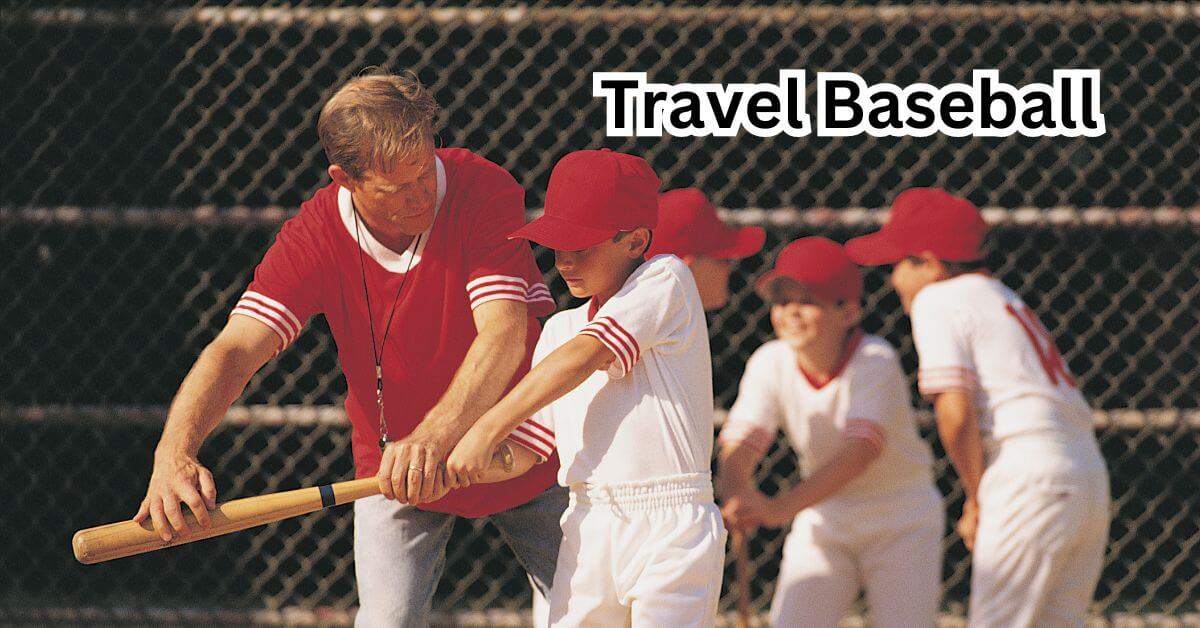
Travel Baseball Uncovered: A Guide For Parents And Players
Let’s talk about baseball—travel baseball, to be exact.
For many, moving from the Little League to travel baseball feels like catching a curveball. After all, it’s more than just a pace change; it’s about trading Saturday afternoon matches on a grassy field for serious club competitions that come with a higher price tag.
You might be thinking, “Is this the right play for my little slugger?” or “How do I even go about choosing a team?”
Well, here’s our chance at bat. We’ll walk you through everything youth travel baseball has to offer, including answering these questions and more.
Table of Contents
What is Travel Baseball [Explained]
Travel baseball is just what it sounds like. It’s when youth teams have to travel in order to have their games and tournaments. This is usually the next step after traditional recreational or Little League.
Since the level of competition is much higher, it can help them develop their skills.
But preparation comes at a cost—literally. And all that time on the road can take up your schedule very quickly. But despite all that extra work, they’ll get an exciting adventure out of it. Now, they’ll face off against teams from different cities, states, and sometimes even countries.
The love for Travel Baseball is Growing Fast.
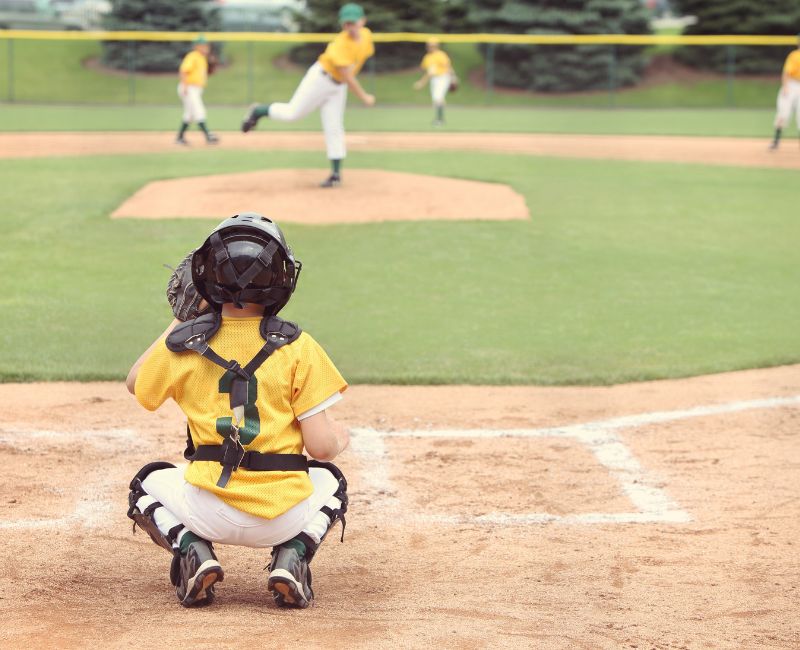
In recent years, travel baseball gained an exponential amount of popularity and saw thousands of teams pop up across the country.
Before the 90s, it was a relatively niche experience only limited to players nestled in regions like Texas and California.
Nowadays, participation is considered necessary for young players wanting to sharpen their skills and go up against some really tough competition.
Instead of focusing on the local leagues like recreational youth baseball does, travel ball operates under various organizations, hosting hundreds of tournaments each year.
Some big names include USSSA (United States Specialty Sports Association), AAU (Amateur Athletic Union), Triple Crown Sports , and Perfect Game .
The ambitious goal for any team is to face off against as many different teams as possible to gain experience and test their skills.
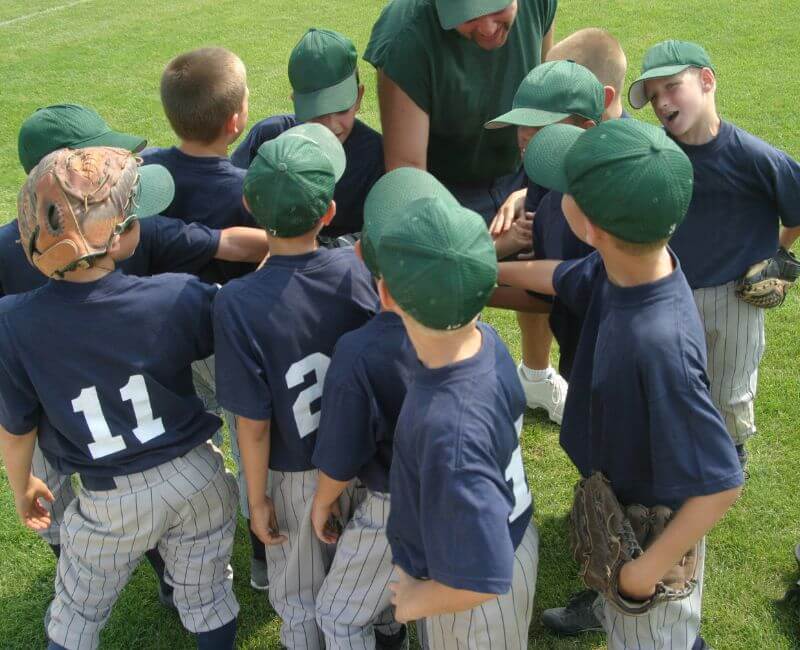
Everyone can create a travel baseball team. It doesn’t matter if you’re a parent, high school teacher, or someone who coaches college kids.
The highlight of the season is the travel baseball tournament. Bringing together talented teams from different parts of the world to compete.
This lets players show their skills to a bigger audience, including scouts and college coaches. These tournaments are organized by many institutions and happen locally, regionally, or even nationally.
There’s nothing cooler than the USSSA World Series, though. Every year, it’s hosted by the United States Specialty Sports Association.
You’ll find talent from all over America coming here to fight for that top spot. But another epic tournament is the Triple Crown Summer Nationals, where they hold it at Myrtle Beach
in South Carolina. It attracts teams from everywhere and is known for great competition and vacation vibes.
A unique little competition is held in Cooperstown, New York, known as the Cooperstown Dreams Park Tournament.
Cooperstown, known as baseball’s birthplace, offers a unique week-long stay in baseball-style barracks. You can visit the National Baseball Hall of Fame.
These intense and challenging tournaments bring out some of the most talented players young kids have to offer. It’s also a great way to boost your young player’s confidence in playing on those big stages!
Different Levels Of Travel Teams And Their Requirements
It’s not just one level fit all for travel baseball teams. They’re organized into various levels based on skill, experience, and commitment from players.
Imagine putting someone who only knows how to throw with moderate force into a contest against someone who does it with full force.
The team you choose for yourself should align with your skill level, how much free time you have, and your developmental needs as a player. Here’s an overview of different levels:
1. Local Travel Teams : For beginners starting their journey through travel baseball. The games they play are mostly local or within a close driving distance. Practices only happen a few times a week, and games during the weekend.
2. Regional Travel Teams : For players with more experience and higher skill levels. They go on trips for games and tournaments that will require overnight stays at places. Commitment level is higher, with practices being more frequent along with a longer season.
3. Showcase Travel Teams : The big leagues of young kid baseball players. These teams are made up of highly skilled people who are very serious about baseball. They have college scouts and recruiters present their games. This includes going to different states for showcase tournaments.
You’ll need to be extremely committed to even think about trying out for this team, and their practices are rigorous and frequent, lasting all year round!
Benefits of Playing in a Travel Baseball Team
A lot of benefits come from playing travel baseball.
The biggest one? It can help players get to their goals. It’s not just about playing a game, especially when you want to make it big. It’s actually an experience that provides lifelong skills that can be applied everywhere else.
Competition in recreational leagues is nothing compared to this. It’s way higher. This allows players to grow new and old skills at a faster rate.
There’s also an intense training schedule that demands discipline, resilience, and focus. These qualities go beyond just sports.
Participating in high-profile tournaments also gets the attention of other coaches and scouts. Which makes it easier for them to open doors for scholarships and professional contracts.
Traveling away from home just for games might seem like a drag, but it builds responsibility and maturity. It is a demanding journey for sure, but very rewarding.

Did MLB Players Play Travel Baseball?
Definitely! A lot of Major League Baseball (MLB) players used travel baseball as their starting point, too. It gives them all the exposure they need, honing skills at such a young age along with fierce competition.
Take Bryce Harper , for example. He’s one of the biggest names in MLB today. His journey started back when he was a child playing for the Southern Nevada Bulldogs 14U travel team. The opportunity came up where he could go against older players who were more experienced than him. This experience helped shape his professional career.
Albert Pujols also played travel baseball when he was younger on his team called Fort Osage Indians Travel Team before sailing into the Hall of Fame.
Clayton Kershaw ? Yeah, him too! Another name you hear often in MLB didn’t start there either — he played for the Dallas Tigers Travel Team where he developed early on gaining crucial skills and discipline that are instrumental in his success today.
How to Find a Travel Baseball Team in Your Region?
If you’re a young baseball player who wants to take their skills to the next level, then joining a travel team is a great opportunity. If you are a parent and want to make your child the next MLB star, then travel baseball teams are a great place to start with.
These teams play across the country and allow players to show their talents against top-tier competition. But how do you find one of these teams?
Here’s a guide on how you can join a travel baseball team in the USA.
Check your local youth baseball organization.
Your first step should be checking with your local youth baseball organization. Chances are they have travel teams that play in leagues and tournaments outside of the regular season. If they don’t, then it’s likely they know someone who does.
Drop by showcases and camps.
In-person events like showcases and camps are great places to meet coaches and scouts from travel baseball teams. They’re designed specifically so players can showcase their skills and get noticed by recruiters.
The internet holds many answers, including finding a travel baseball team. Websites like USSSA Baseball, Perfect Game USA, and Travel Ball Select list lots of travel baseball teams based on state, age group, and skill level — all at a click away.
Talk to other parents and players.
If you want first-hand experience, then talk to other parents or players who have been through this process before. They can give useful insight into which teams are reputable, well-run, and competitive.
For example, if you live in Texas, then one option could be the Texas Bombers Baseball Club — an organization that has multiple teams at different age levels and is known for developing young talent. You can learn more about them by visiting their website or attending one of their tryouts.
How to Find the Perfect Travel Baseball Team?
Identify the skill level and commitment of the player.
First thing first, you need to figure out how committed your child is to the sport and their skill level. If he is naturally gifted athlete then you should help him to follow his dream.
Research Local and Regional Teams
Begin by looking at teams that are close by. These teams usually have varying levels of skill and serve as great entry points for most players.
You can check their websites and social media pages to learn more about them such as philosophy, coaches, players, and game schedule.
Attend Local Games and Practices
Sitting in on local games and practices allows you to get a firsthand look at how they run things. You’ll be able to see their coaching style, how they interact with the players, and the overall team dynamic. With this insight, it’ll be easier to make a decision.
Speak with Coaches and Parents
While observing is good, it isn’t enough. Take some time out of your day or week to speak with coaches.
This allows you to gain an understanding of their training methods, the expectations they have for your child, and the goals they want them to reach. It’s also good practice to talk to other parents so you can get a general idea of what people think about the team.
Consider Logistics
Logistical factors are important, too, so don’t forget about them. Make sure that the team’s practice location is suitable for you and your family’s schedule since it may be far away from where you currently live or work.
The game schedule should be looked at as well because there could be conflicts in dates that would keep you from attending games.
Tryouts & Evaluations
Most teams hold tryouts or evaluations for people who are interested in joining. If this is offered, take advantage of it because it gives your child the chance to showcase their skills and for you to see if the team would be a good fit.
A player’s evaluation is also helpful because it gives you insight into how strong the team itself is.
Travel Baseball Season Preparations
Preparations before the pre-season.
Before the baseball season starts, you’ll want to make sure that your child is mentally and physically ready for the long days ahead.
So, let’s start with an off-season workout routine to help build strength and agility. But don’t forget about eating well and getting enough sleep. Plus, practicing regularly can take their fielding, pitching, and hitting skills way up.
During the season
Once the season starts, it’s important to stay fit and perform at your best. You’ll want to communicate with their coach to keep track of your child’s progress as well as any areas they need improvement in.
Another thing you should do is show up to their games and practices. It helps you stay in tune with how the team is performing and also supports your child. And finally, always keep their lines of communication open, whether it’s about pressure or their anxiety.
Post-Season
After a long season, it’s important to take a break. Reflect on the games you had together. Acknowledge all the good things they did but also focus on areas they can improve in.
Give them some downtime so they can rest and recover. Even though they’re chilling around, don’t let them become bums — physical activity is still important for them during this time.
Travel Baseball vs. Little League
Both types of baseball have their own unique experience and benefits that come along with it. The choice of which one to put your kid into mostly depends on what they want out of it.
For example, travel baseball is more competitive. It attracts players who are committed to sports no matter what and are willing to travel around just for a game against top talent in various regions. Not only does this provide intense competition but also high-level coaching.
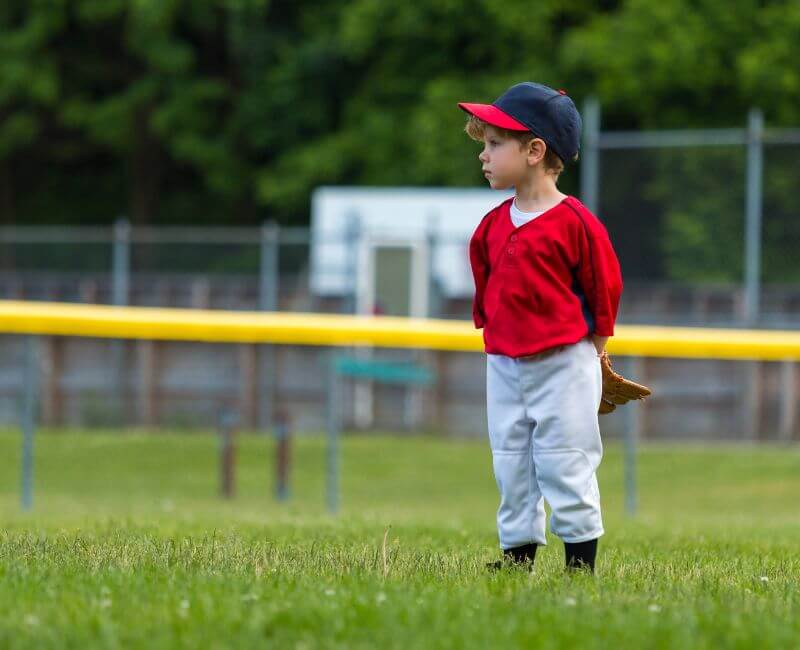
It does require a lot of time, as seasons are much longer than in little leagues with more games and practices.
If you want your child exposed more, then this would be a good option, as you can see from Bryce Harper, Albert Pujols, and Clayton Kershaw.
Now, little league baseball is less demanding. It’s generally more focused on the community and not so much on traveling and time.
It’s actually a great option for kids who still love the sport but aren’t ready to commit to such a demanding schedule. They focus on learning fundamental skills, enjoying the game, and fostering a sense of community.
You can learn more here: Travel Baseball Vs Little League
The Cost of Playing Travel Baseball
If your kid has a future in baseball, you might want to consider enrolling them in travel baseball. The only problem is that this option is much more expensive than local leagues.
Local leagues tend to have low costs because they don’t do as much traveling as travel teams have to do. On top of paying for the actual games themselves, there’s also the top-of-the-line coaching and amazing facilities that the team needs to cover.
You’ll be hit with fees like equipment, uniform, tournament, travel (like gas and airfare), and a team fee.
The team fee alone can include things like league fees, practice facility rentals, and salaries for the coaches.
And let’s not forget about any extra training or lessons they need in order to take their skills up a notch.
It’s always good to ask the people organizing the league what you’re paying for specifically because then maybe it won’t seem so bad (it probably will still seem bad, though).
But it really does come down to where you live.
Depending on that, it could cost you anywhere from $1,500-$3,000 per season. And if you’re on one of those elite teams competing at national tournaments, then I’m sorry, but it’ll probably cost way more.
Find Out How To Choose A Coach
A good coach doesn’t just teach how to play sports but also builds discipline and confidence, along with fostering a love for the game. Here are some tips on picking a coach:
Experience And Certification : A coach should always have some kind of experience coaching youth sports, but having proof that they passed some coaching program can give you peace of mind, knowing they know what they’re doing.
Coaching Style : Every coach is different and will treat their athletes differently, too. Some will be very intense in trying to push their players, while others are more relaxed yet inspiring. Pick what works best with your child’s personality.
Communication Skills : A good coach knows how to explain things in a way that’s easy for their athletes to understand. They should also be great at talking to you and other parents.
Focus On Development : It’s better for your kid to improve their skills rather than just win all the time. Look for coaches that will work with them on that.
Reputation : Finally, look into what other people say about the coach. Not only other players but parents, too. It doesn’t hurt to ask around or even watch them during practice if you can.
Things to Know About Uniforms and Equipment in Travel Baseball
Uniforms and equipment are a necessary investment in travel baseball. It can be beyond what you expect from Little League. Here’s a quick rundown of what your child might need:
Uniforms : Most travel baseball teams have their own custom jerseys that come with pants, caps, belts, and socks. Some teams may even have home and away uniforms, so check with the manager first.
Gloves/Mitts : Get your child a good quality glove or mitt that suits the position they play. For example, catchers and first basemen have their own special mitts, while outfielders use bigger gloves compared to infielders. Check out the Best Youth Infield Gloves
Bats : Bat rules can get very specific, depending on the league. Before you buy one, make sure you understand what kind is allowed. Also, consider their height, weight, and hitting strength when selecting the right bat size .
You can check out my list of Best Youth Baseball Bats
Helmets : No matter how old or young your child is, they need a batting helmet. Some leagues even require faceguards as well. Check out the Best Youth Baseball Helmet
Cleats : Running on grass and dirt requires traction, which is why cleats are used in baseball. However, be aware that some leagues don’t allow metal spikes, so again, you should always check if there are any shoe restrictions.
Protective gear : Depending on the position they’re playing at, your kid may need extra protection such as shin guards for their legs or a chest protector for their torso
What is a good age range for travel baseball?
Travel baseball typically starts around 7 or 8 years old and goes through high school. However, the age that you can join may differ depending on the league or team.
How much does it cost to play travel baseball?
The price of playing travel baseball could be greatly different depending on things like where you live, what team you’re on, and at what level you play. You’ll have to pay for league fees, uniforms, equipment, and even the costs of traveling and staying in other cities for away games.
How often would we need to practice?
Usually, travel teams practice more often than recreational ones. It’s common for them to meet several times each week. But it will depend on the time and dedication your child’s coach expects.
How far do they have to go?
Again, that’ll depend on what league your child signs up for. Some teams only need to go a couple of miles, while others will have to cross city lines.
Can my child also play another sport?
It all depends on how much time both sports require. Understandably, travel baseball takes up quite a bit of time and energy, so consider if they have enough for both.
Overall Worth of Travel Baseball
Traveling with a baseball team is no joke. For players and families alike, it’s considered a big commitment that takes up lots of time, money, and energy.
And while it opens up new opportunities, the best reward for joining one is amazing! The skills learned, and knowledge gained from playing at higher levels is priceless.
Plus, it builds character, helping to teach important lessons like teamwork, dedication, success handling, and, most importantly, failure handling. And let’s not forget about the friendships built along the way from spending hours with teammates in different places across the country.
Even though some costs and sacrifices come with this commitment, most families say joining a traveling baseball team was totally worth every bit of it.
Just remember, the end goal is to love the sport and grow as a person.
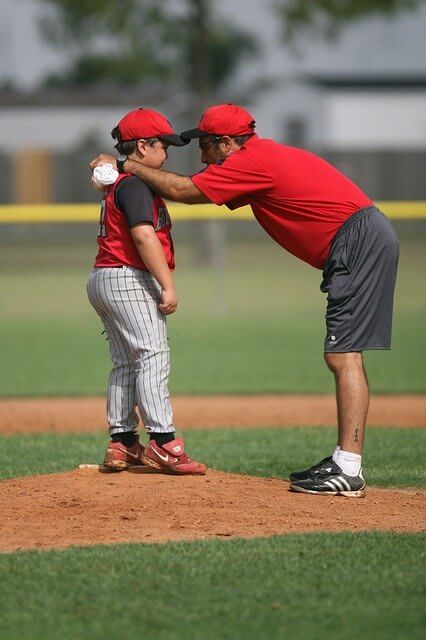
Hello everyone. My name is Jason Butler, and I live in California, America. I was a professional AAA Minor League Baseball player. I lost my chance of playing MLB for injury issues, but I did not lose my love for baseball. I attended the coaching training program and am now working as a coach in a small school in San Diego.
I always love to share my experience and knowledge if that can help you. Play baseball, and stay fit.
The 9 Best Baseball Documentaries
The history, the heroes, and the scandals... and yes, we included ken burns' lengthy miniseries..

Nonfics is now a newsletter! Please support documentary criticism by subscribing here: nonfics.substack.com .
Hot dogs, Sunday barbecues, and baseball. Few things are as positively American as those three things, but of those three, baseball comes out on top. The sport has been a constant in American society for more than 100 years, and it has brought the nation together at the worst of times and even worked as a nexus for sociopolitical change. Yet, at its heart, baseball is more than a sport. It is a storytelling machine. Baseball has brought out some of the best, most heartwarming, and most scandalous tales in all of athletics. Below is a list of nine baseball documentaries that epitomize the varying degrees of intrigue that can come from the sport and those who engage with it. It would be safe to call each of these films a home run (come on, I had to do it).
Screwball (2019)

Baseball is a sport of high highs and low lows. There is as much triumph in the sport as there is tragedy, and Billy Corben ‘s Screwball leans well into the tragedy aspect. Less focused on what happens on the diamond, the film is focused on Major League Baseball’s most famous doping scandal, which rippled throughout the entire sport, from a corrupt clinician, Tony Bosch, to famous New York Yankees player Alex Rodriguez . Corben’s film is intimately documented and fact-checked. What may seem absurd turns out to be fact, and this doc leans wholeheartedly into the oddity of it all. The viewer may be laughing throughout the entirety of Screwball , but under that humor is genuine darkness, metaphorical back-stabbings, and wrongdoings.
The Battered Bastards of Baseball (2014)

Chapman and Maclain Way ‘s The Battered Bastards of Baseball tells a tale that puts the independent and go-getter nature of baseball into the spotlight. In 1973, famous Hollywood actor Bing Russell started the only independent baseball team in America at the time, the Portland Mavericks. Their story is ripe with intrigue, from hiring the first female general manager in baseball to signing a young Kurt Russell (Bing’s son) to play on the team to inspiring the bubblegum brand Big League Chew. Kurt’s onscreen recollections of his father and the team are where the film is at its best, as he recounts these memories with a sense of warmth and joy. Furthermore, as an independent team, the Mavericks created new viewership records and The Battered Bastards of Baseball rises above the sport to become an interesting story about outsiders and the anti-establishment.
Fastball (2016)

Can an entire documentary be carried on the idea of throwing a baseball really, really fast? Jonathan Hock ‘s Fastball successfully argues that yes, a great documentary can be made about athletes throwing a baseball with all their might. Kevin Costner narrates the film, and famous baseball players — Derek Jeter , for one — and scientists try to figure out who threw the fastest pitch ever. They also ruminate positively at the experience of the time between a fastball being thrown and it reaching home plate. Fastball ‘s story rises above the scientific and analytical breakdown of the fastball and becomes a tale about the sport, itself.
Brooklyn Dodgers: The Ghosts of Flatbush (2007)

The once Brooklyn Dodgers had long been one of the most famous MLB teams because of how the team has long represented the diverse working-class nature of Brooklyn throughout the borough and its team’s history. Brooklyn Dodgers: The Ghosts of Flatbush charts the famous team throughout the 1940s and 1950s until their move to Los Angeles, California, in 1958. The HBO documentary presents a rich story that shows how the sport of baseball offered hope to many in post-war America and how it offered a platform for racial and sociopolitical change, with Jackie Robinson ‘s signing to the Dodgers and becoming the first black player in the MLB, specifically.
As much a story about baseball as it is about a specific time and place, Brooklyn Dodgers: The Ghosts of Flatbush is a story that even non-baseball lovers can warm themselves to. Humane, grounded, and steeped in another era, the documentary uses still photographs, era-specific film footage, and sound clips to transport the viewer to another time. But the film finds itself at its most emotional moments when people (who are no longer young) are asked what the Brooklyn Dodgers mean to them, and what they meant to their neighborhood at the time.
Catching Hell (2011)

Sports fans are a ravenous bunch, just ask Chicago Cubs fan Steve Bartman . He found himself in the crosshairs of every single other Cubs fan in 2003 because many of them believed his interfering with a foul ball was the root cause of their team not making the World Series that year — their “curse” that began in 1908 would have been lifted, but alas, it was not meant to be. Bartman became the scapegoat and the face upon which immense blame was heaped. He even received death threats.
Years later, Alex Gibney decided to revisit the incident and the fallout it caused in his ESPN documentary Catching Hell . The film succeeds in meticulously studying the incident that shook the team and its fans, and he does so by interviewing security personnel, Cubs fans, Bill Buckner (the Red Sox first baseman blamed for the infamous error in Game 6 of the 1986 World Series), and members of the Chicago and Boston news press. Gibney is fascinated by how and why such singular moments of errorusually become nexus-points and targets for blame, scapegoating, and volatile harassment. Catching Hell succeeds in showing the darker aspects of sports fandom and the burden that both fans and players carry — although the scale of that burden is drastically off-balance.
Knuckleball! (2012)

Here we have another documentary focused on the throwing of a baseball. However, this time, the technique on display is the knuckleball. Ricki Stern and Anne Sundberg ‘s Knuckleball! is not just about that specific pitch but also how the rich mythology of the sport of baseball makes it such a compelling game to follow.
The knuckleball is, surprisingly, rarely used in major league baseball, as it is a rather tricky throwing style and it is hard to control. But those who have learned to use it at the MLB level have achieved a near-mythic status. Following the seasons of players Tim Wakefield and R.A. Dickey , Knuckleball! studies how and why these players use the knuckleball, the hardships they’ve endured, and why patience is the name of the game when it comes to mastering this particular pitch. To Wakefield and Dickey, it is common knowledge that the knuckleball gets better with age, and deep into their careers, they’ve come to understand this as fact. Growth, age, nostalgia, and myth are imbued in nearly every scene of the doc , and though it may just be about a certain way of throwing a ball, to lovers of baseball, Knuckleball! offers so much more.
The Life and Times of Hank Greenberg (1998)

Hank Greenberg was the first Jewish Major League Baseball player, and Aviva Kempner ‘s The Life and Times of Hank Greenberg studies the man as both a great athlete and an important cultural icon in American pop culture. Playing for the Detroit Tigers, Greenberg faced many hardships and antisemitism, but he both endured and rose above it. In doing so, he helped lead the Tigers to Major League Baseball dominance in the 1930s. But more importantly, he became an inspirational icon and a hero in the Jewish community and showed that his status as a baseball player was so much more than just that.
Kempner uses archival film footage of Greenberg, interviews with former teammates, family, and friends to help tell the inspiring story and to paint a picture of who the man behind the legend was. Furthermore, Kempner interviews both Jewish and non-Jewish fans to show what Greenberg meant and means to various people. To some, he was an inspiring hero and to others, he was just an outstanding first baseman, and history will remember him as both.
Ballplayer: Pelotero (2012)

Ballplayer: Pelotero tells the story of two top baseball prospects from the Dominican Republic and the immense hardships they face as they attempt to bring their big league dreams into reality. Directed by Ross Finkel , Trevor Martin , and Jonathan Paley , the documentary follows two teenagers, Jean Carlos Batista, and Miguel Angel Sano, as they attempt to wow MLB prospects in order to make their dreams come true. What initially seems like a heartwarming coming-of-age rags-to-riches tale slowly molds into something more thought-provoking.
As the film winds on, what is shown is the morally gray territory between exploitation and desire. Almost every choice made in this film has something to do with financial gain or, at least, the prospect of financial gain. Many questions are raised, but few are answered. The Dominican government may turn a blind eye to the MLB’s place in the nation, young men confuse exploitation for dreams of a better life, and most importantly, Ballplayer: Pelotero begs us to ask whether or not the recruiting system in the Dominican Republic is sustainable.
Ken Burns’ Baseball (1994)

Of course, this tome of a documentary was going to be on this list. Ken Burns has long been known for his immensely rich and detailed documentaries, and when he turned his gaze to baseball, what followed became one of the greatest documentaries about the sport. As a piece of work, Baseball is a colossal achievement. At 19 hours long, it is no short watch, but the stretched-out length allows Burns to tell the story of baseball from its fledgling start to the monolithic place it holds in American society today. Focusing on the sport from a macro scale, Burns relates so much of the sport to various times and various places. Baseball ebbed and flowed for years until it found its footing, and from there it just rolled ever onwards.
Yet, Burns knows that what makes sports so interesting is not the sport itself but those who play and follow it. Baseball , on top of viewing the game through a macro lens, tells many tales of singular human achievement, suffering, and underdog stories, and all of these tales weave themselves into the tapestry that is the American mythology of baseball. It is “America’s favorite sport” for a reason and Burns’ documentary offers the best and most holistic reasons why baseball will always be a part of the overall American experience.
Tags: Alex Gibney baseball Ken Burns Lists Screwball sports
You May Also Like

The 6 Best Documentaries of the 2022 Sundance Film Festival

5 Must-See Human Rights Documentaries from 2012

Our 25 Most Anticipated Documentaries of 2022


Our 25 Most Anticipated Documentaries of 2021
Cole henry (student/freelance writer).

Cole Henry is a media theory and philosophy student at Georgia State University, as well as a freelance writer and editor. He is quite interested in every aspect of documentary cinema, and can usually be found reading, writing, running, adding items to his Criterion Collection shopping cart, and eating tacos.

Travel Baseball: The Ultimate Guide for Parents and Players
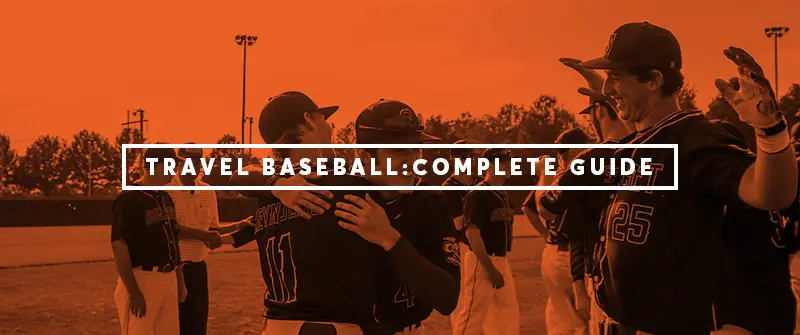
Table of Contents
What is travel baseball, what to look for in a travel baseball team, travel baseball vs. little league, travel baseball pros and cons , criticisms and controversy, is travel baseball worth it.
For many families, the transition from Little League to travel baseball comes with stress, anxiety and questions about what to look for in a team and what to expect from the experience — not to mention the question of whether making the switch from a more laid-back rec ball program to a more competitive (and expensive) travel club is the right decision in the first place.
In this post, we’re going to go over everything you need to know about getting started with youth travel baseball. We’ll help you answer the questions above and determine whether travel baseball is a good fit for your son or daughter.
If you have a softball player in the family, you may also want to check out our article “ What to Look For in a Travel Softball Team ,” which covers some of the same information from a softball perspective and dives deep into my personal experience as an elite-level amateur player and college recruiting prospect.
Table of Contents :
- How to Choose a Travel Baseball Team
- Travel Baseball Pros and Cons
- Is Travel Baseball Worth It?
First, it’s important to understand what a travel baseball team is and how travel baseball is organized.
There are tens of thousands of travel baseball teams around the country, and their popularity has exploded over the past two decades. As recently as the 1990s, travel baseball was a niche experience limited mostly to elite players in baseball-rich areas like Texas and California. Today, participation is seen by many as a near necessity for talented players to develop their skills and hone their game against the best competition they can find.
Whereas Little League is the dominant organization when it comes to recreational youth baseball, there are multiple organizations throughout the country that host hundreds of travel tournaments each year. Some of the biggest and most popular are USSSA (United States Speciality Sports Association), AAU (Amateur Athletic Union), Triple Crown Sports , and Perfect Game . Travel baseball teams often participate in tournaments organized by more than one of those organizations.
A team can be started by anyone. Many are formed by parents, but many others are formed by high school and former college coaches. Depending on their organizational goals, some programs have just one team that participates in one age bracket (such as 10 and under), while some are run like businesses and have teams that compete in every age group.
Some huge organizations, such as California Baseball Academy (CBA), even have multiple teams within the same age group, located in multiple cities. CBA has teams not only in California, but also in Nevada, Texas, Utah and the southeast. High-level programs like that are often known for attracting top talent, for training recruits into elite players, and for feeding those players into nearby colleges and universities.
Travel Baseball Competition Structure
Virtually all travel baseball games are played on weekends in a tournament format. Those tournaments can theoretically be held anywhere, but are frequently held at multi-field facilities in easily-accessible travel hubs. For example, many Florida tournaments are held in Orlando because it’s in the relative center of the state, it has plenty of hotel rooms, and it’s home to many great baseball facilities. The farther you live away from such a hub, the more you should expect to travel.
Most tournaments begin with pool play, meaning that teams are guaranteed a number of games before heading into single elimination. A team can expect to play anywhere from three to eight games over the course of a two-day or three-day tournament, depending on how they perform.
There is no set number of tournaments a team must participate in. Each team decides which tournaments to enter on a case-by-case basis, taking into consideration factors such as age level, skill level, and cost. In general, two tournaments per month can be seen as about average, although higher-level teams may play more frequently.
Most organizations run regional and national championships, which are invite-only. For example, USSSA hosts “qualifier” tournaments, where the winner of the championship game (and sometimes the runner up) can earn a bid to the USSSA national tournament.
Additionally, beginning at age 14, some teams start participating in “college exposure tournaments,” where college scouts come from across the country to watch and evaluate prospects. These tournaments are typically more expensive than regular tournaments, and are often farther away.
How to Join a Travel Baseball Team
If you’ve decided to join a travel baseball team and aren’t sure where to find one, there are a number of resources available.
It may go without saying, but word-of-mouth can be a valuable first reference point. If you’re thinking about switching to travel baseball, chances are that you already know someone in your area who has made the jump. If so, don’t be afraid to ask them questions about the team and their experience. It’s a big commitment — both in terms of time and finances — so it’s important to make sure you find the right club for your son or daughter.
In addition to word of mouth, many organizations offer a list of active teams on their website. For example, USSSA has a tool that lets you filter teams by age level, skill level, and location . There are also many state-based forums and Facebook groups where coaches post their team’s tryouts (and positions needed). As an example, here are Facebook groups for travel baseball teams in Florida and Michigan — you can find similar groups for every state.
Another good option is FieldLevel.com , which (like the USSSA site) allows you to filter teams by state and level. While not every team is listed on that website, it does include over 4,000 clubs.
Here are eight things to think about when evaluating teams. These factors will make a big difference when it comes to your overall experience, so take the time to think about them, and don’t be afraid to ask questions of parents and coaches.
1. Coaching
A coaching staff can make or break a team. How coaches manage players, keep the game fun, instill the fundamentals, and focus on development — not only as athletes, but as young men and women — is extremely important.
Some travel baseball teams have parents or grandparents serving as the head coach. While that can be fine, it’s important to make sure those coaches don’t make keeping their own child on the field a priority. Before committing to a team, spend some time researching it by watching a practice and talking to current and/or former players and parents.
What’s the coaching style? Do they have high expectations but still encourage and love their players? Or, on the other hand, are they screaming at players when they make a mistake?
Additionally, are players treated equitably, or do some get preferential treatment based on their relationship to the coach or their financial contribution to the team?
Ideally, your child will be a part of that team and organization for consecutive years, rather than bouncing from team to team. As such, determining whether the coaching staff is a good fit is a crucial first step.
2. Cost
For many parents, this is the most terrifying aspect of travel baseball.
Just how much of a toll is this going to take on your bank account? The specific answer varies, but the typical range of cost for participating in travel baseball is between $500 and $2,500 per year.
That said, you can end up spending a lot more than that. Back in 2011, CBS News reported that one Georgia family paid $4,000 per year for their 9-year-old son’s travel team. You can imagine that older players in elite programs that travel all over the country can spend even more over the course of a season.
Typically, the more intensely focused a program is on developing its players for college baseball, the more money the program is going to cost. On the other hand, teams that are playing more for the fun of it — those looking for just a little more structure and competition than offered by Little League — won’t put as much of a dent in your wallet.
There are a number of specific factors that go into how much it costs to be on a team:
- Where you live . If you live in a baseball hub, like Texas or California, you won’t have to travel as far to get to tournaments. Many teams from rural areas regularly drive across multiple states (or sometimes even fly) to tournaments. As such, where you live will likely be the single biggest variable in your overall travel baseball cost.
- Whether you have to buy your own equipment . Some teams are sponsored by equipment companies like Easton and Rawlings and have their bats, gloves and cleats provided either for free or at a reduced cost. Obviously, this can be a huge savings. Also, keep in mind that (unfortunately) equipment is often viewed as a status symbol in travel baseball. If your child joins a team where every other player has multiple bats and position-specific gloves, he or she is going to press you for similar gear.
- Whether you have to rent facilities . Some teams practice exclusively at public fields. Others have little or no access to such facilities and have to rent fields and/or indoor space (especially for winter workouts). This can have a huge impact on the overall cost of participation.
- Whether or not coaches are paid . Some teams — typically the more competitive ones — pay their coaches small stipends and/or cover their cost of travel. On one hand, this tends to lead to better coaching. On the other hand, families are the ones who will ultimately foot that bill.
- How competitive the team is . Higher-level tournaments typically have higher fees. Lower-level tournaments, operated on a more sub-regional basis, are usually much less expensive to enter. If cost is a concern, make sure you know what types of tournaments the team usually enters over the course of the season.
3. Location
As stated earlier, location is a key factor in deciding which travel team to play for. If you’re fortunate enough to live in California, Florida or Texas, you’re going to have a lot of opportunities to play with and against high-level competition right in your backyard.
But outside of those states, it’s a little bit tougher, and you have to decide how committed you are to playing at the highest possible level.
For example, if you live in a medium-sized town outside of a major baseball hub, chances are you have at least a couple of travel ball options. However, the odds are that those options are not the absolute cream of the crop when it comes to coaching and competitiveness. In order to play for the absolute “best” team possible, you might have to commute from your mid-sized town to the nearest major city.
So you’ll be faced with the following choice: play on a lower level team that’s closer to home, or drive a hundred miles or more for twice-weekly practices? It may sound crazy, but many families do just that.
Why would they commit so much time and money to their son or daughter’s athletic pursuits? It comes down to goals. Better teams often provide better coaching and more opportunities for exposure to college and professional scouts.
What’s the team’s mission? Is the focus on fun, player development, college exposure, or a mix of all there? Teams can have many different goals and missions, and there’s no right or wrong approach.
However, it is possible that a team’s mission does not align with your values and goals, and you need to think about this before committing, as a compatibility mismatch can lead to coach-parent and coach-player tension.
5. Organization
Consider the reputation of the organization you’re evaluating. When you join a team, you and your son or daughter will essentially be endorsing everything the program stands for. If they’re known for dirty play or being disrespectful to the game, you’ll be associated with that.
And believe it or not, the baseball world is a small and surprisingly tight-knit community. College coaches tend to know which programs produce bad apples — and they avoid them. In fact, many college coaches will completely write off an entire organization that has a reputation for not playing the game the right way or for having disrespectful players.
6. Playing Time
There’s an important balance between getting enough playing time and being challenged. Before committing, ask the coaching staff what kind of playing time your child can expect — including at what position.
If there are two returning shortstops, he or she most likely won’t be playing there and might have to learn another position. That’s not a bad thing: college coaches want players that are versatile, and many players change positions as they get older and their bodies develop.
Still, it’s helpful to know what to expect ahead of time. Getting game reps is important from a development perspective, but also just from a fun perspective: no kid wants to consistently travel to a tournament only to sit on the bench for most of the weekend.
7. Skill Level
Be realistic about your child’s skill level, and pay attention to the level of competition around him or her at tryouts (i.e., the skill levels of the other players). If your kid has the fight and desire to compete for a spot (like they’ll have to do if they make it to college ball), then putting them on a team where they’ll be challenged is the best option.
But if he or she is there to have fun and make friends, with no burning desire to be constantly improving, then choosing a travel team that’s more low-key will be the better call.
8. What You’re Giving Up
Travel baseball tournaments are on weekends, and players often have to sacrifice certain things that are part of a normal childhood.
Is your son or daughter willing to miss out on things like birthdays, sleepovers and school dances, because most of their time is spent doing homework, traveling to and from games and practices, practicing on their own (possibly including private lessons), and spending nearly every summer weekend at the ballpark?
And are they willing to sacrifice the material things that matter to kids — things like clothes, video games, new smartphones, etc. — because so much money is being spent on baseball?
As I wrote in THV’s guide to travel softball , my family made major sacrifices to support my athletic pursuits.
For some, their love of the game is so great that giving up these things is a no-brainer. For others, they may regret missing out on these social activities. And that’s perfectly fine! Just be honest with each other and talk about the true costs of travel baseball — because it’s not just the sticker price.
There are some important similarities and differences between competitive travel baseball and recreational baseball. Both can teach many valuable life skills, such as work ethic, good sportsmanship, teamwork and bouncing back from failure. But they are very different when it comes to time commitment and competitiveness.
The Little League schedule usually runs from the late spring through early summer, with teams practicing twice per week and playing two games per week. The total number of games per season varies, but it usually ranges from 10 to 20. It’s a local program, which means travel is either limited or non-existent. In general, Little League coaches are parents.
Little League can be a great place for kids as young as 4-years-old to start playing the game. They’ll learn the rules and the absolute basics of hitting, pitching and fielding in a fun an easy-going environment (except for the occasional parent that takes their coaching position overboard).
Overall, Little League fits the classic stereotype of youth baseball: kids having fun playing the greatest game in the world, without much pressure or focus on player development.
Back in the day, Little League would feed into middle school and high school programs, which carried the bulk of the weight when it came to getting payers ready for college and the pros. But today, the reality is that it’s almost impossible to get the coaching and skill development you need by participating only Little league or other rec ball programs.
That’s especially true when it comes to the gap between “Majors” Little League (12-and-under) and high school. Few middle schools still have baseball programs, and those programs that do exist tend not to be very good. Likewise, while Little League offers both a Junior division (12-14) and a Senior division (14-16), those leagues tend to pale in comparison to the coaching and competition offered by travel ball.
So, if your son or daughter is serious about playing baseball at a high level, it’s especially important to focus on the transition to travel ball at around the age of 11 or 12.
There are positives and negatives when it comes to travel baseball. Here are a few of each.
- Better competition : Players are more serious about the game and more driven to improve. This higher level of competition will help push your son or daughter to improve their own skills.
- Better coaching : Travel baseball coaches tend to be better qualified, more knowledgeable, and better-connected. At the highest levels of travel ball, teams often employ former professional coaches.
- More exposure : Aside from high school baseball, travel ball is the primary means of exposure to college coaches and pro scouts. Plus, travel teams often attend showcase tournaments and camps.
- More games played : Travel teams play significantly more games per year than rec ball teams.
- Facilitates travel : Sometimes seen as an ancillary benefit, the travel itself can be a valuable and eye-opening experience for players. Many kids don’t have an opportunity to travel out of their own area or state, and travel baseball can provide that.
- Encourages character development : Because travel teams are more serious, there’s a greater emphasis put on things like being on time, demonstrating maximum effort, and having a good attitude.
- Cost : Travel baseball is expensive — sometimes absurdly so. Families often spend around $2,500 per year, but the costs can be even higher.
- Time commitment : Even a moderately competitive travel team can consume an entire summer’s worth of weekends.
- Ultra-competitive : On most travel teams, there’s a balance between player development and winning. What you won’t often find is an “everybody plays” approach. For the most part, the best players will play the most, which makes for a highly-competitive environment.
- Tougher workouts : This can be a pro or a con, depending on the player’s perspective and goals. Tougher workouts can lead to better outcomes, but they can also be mentally and physically taxing if the player isn’t fully invested.
- Lack of diversity : Because travel baseball is expensive, it has often been criticized for a lack of socioeconomic and racial diversity.
Travel baseball provides many benefits and can be a valuable opportunity for players who are serious about the game and committed to playing at the highest possible level. However, it’s not without its share of criticism and controversy.
In an essay titled “ Left Out ,” MLB superstar Andrew McCutchen wrote about how kids like him, who grow up in low-income families, are often excluded from travel baseball and thus systematically disadvantaged when it comes to development and exposure:
“When you’re a kid from a low-income family who has talent, how do you get recognized? Now, you have to pay thousands of dollars for the chance to be noticed in showcase tournaments in big cities. My parents loved me, but they had to work hard to put food on the table, and there wasn’t much left over. They didn’t have the option of skipping a shift to take me to a tournament over the weekend. […] That’s the challenge for families today. It’s not about the $100 bat. It’s about the $100-a-night motel room and the $30 gas money and the $300 tournament fee.
[…] If you’re a poor kid with raw ability, it’s not enough.”
McCutchen was lucky: an AAU coach “discovered” him at the age of 13 and covered his travel ball expenses. But most kids from similar situations aren’t so fortunate.
Why is this important for you, the parent of a child thinking about joining a travel team?
On one hand, it’s important to be aware of how the systems we participate in affect our society. But on a much more specific level, you should know that your child will be entering a largely homogenous environment.
On top of that, kids from lower-income families can often feel out of place in travel ball — especially if they don’t come to the ballpark with the latest, top-quality gear like their teammates. This social dynamic can have a powerful impact on your child’s experience.
Additionally, travel baseball means that both your family and your child will be spending less time within your own community.
There’s been a lot written in recent years about how travel baseball may be contributing to the erosion of communities , because it pulls families out of local baseball programs that once served as important civic institutions.
This is evidenced by the sharply declining participation in Little League. In the organization’s Southeast Region (a hotbed for a travel baseball), the number of Little League players has plunged by nearly 50% since 2007 .
So we’ve come to the biggest question: Is travel ball worth it?
If you want to improve your skills and have the best chance to play in college or the pros, travel baseball is the way to go. But remember: there is a range of cost and time commitment within travel baseball. Your son or daughter doesn’t necessarily have to opt for the most expensive travel team in order to be sufficiently challenged (and later on, to get noticed by college coaches).
Your goal in evaluating teams should be to find the right balance of:
- Financial commitment
- Time commitment
- Intangible sacrifices (school events, community involvement, etc.)
- Baseball goals
After reading this article, you should have a very solid understanding of what Little League and travel baseball have in common, their differences, and what you should be looking for in a club.
Remember, this is your child’s choice to. Help them see the pros and cons of each option. And although we stated it earlier, we cannot stress this enough: you cannot dictate your son or daughter’s commitment to the game of baseball. It’s up to them. So, support them in whatever capacity they want to participate. If you do, they’ll never regret or forget the amazing experiences, friends, and lessons learned playing this great game.
The Hitting Vault is the most popular, most trusted and highest rated online hitting community.
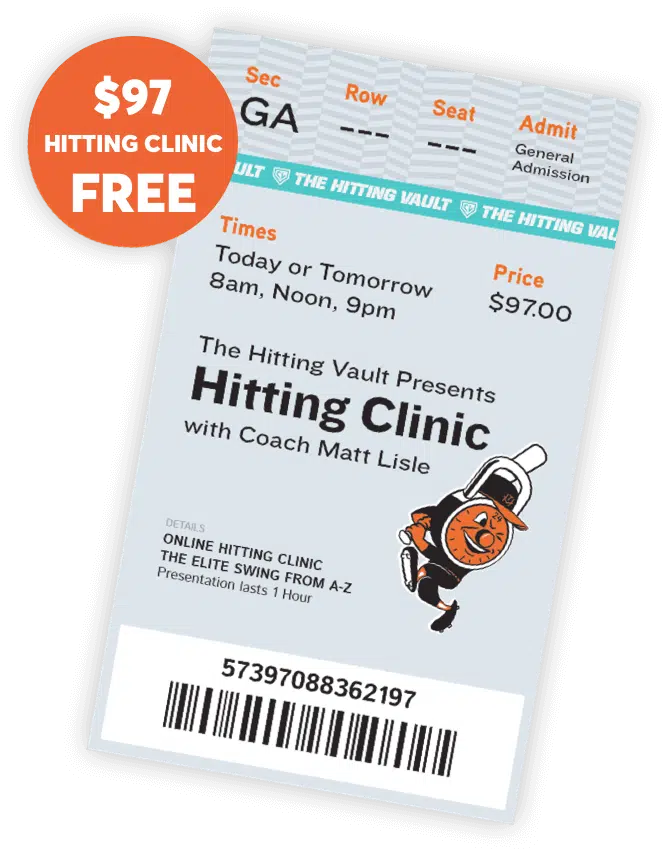
Alexa Peterson
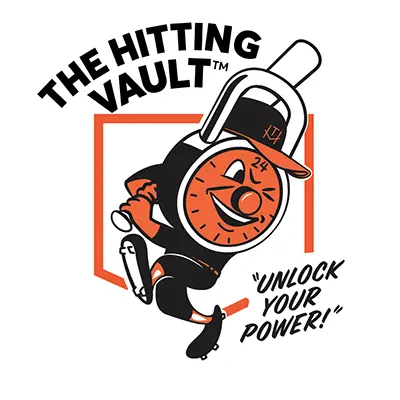
Join 93,000 Subscribers Who Love Hitting.
Get two articles delivered to your inbox each week.
Screen Rant
10 baseball documentaries to help you through the delayed season.
With the 2020 baseball season on hold, fans are dying to see more of the sport. These documentaries will fill that need for you.
With Major League Baseball having delayed the start of its season until further notice due to the coronavirus pandemic, saddened fans everywhere are struggling to keep morale high.
RELATED: Top 10 Pandemic Films To Watch (According To IMDb)
If one is down in the dumps about the sports hiatus, they should consider sampling the below-listed baseball documentaries. Especially since watching repeats of entire games can become too painful at times. But by sampling the following, they will instead learn about the game's evolution through talking-head testimonials and archival footage bound to distract them from the current ordeal.
Hank Aaron: Chasing The Dream (1995)
Nominated for the Academy Award for Best Documentary Feature, this film notably features the current MLB career home run leader - Barry Bonds - as one of its many interviewees.
Filmed over a decade prior to his breaking the home run record himself, Bonds stated it was, "Straight impossible!" for anyone to surpass Aaron's 755 career home run total. Thus, old school baseball purists are sure to enjoy the documentary that covers whom, due to Bonds' alleged steroid use, many still consider the real homerun champion.
Knuckleball! (2012)
At the time, one of the film's key subjects - Boston Red Sox pitcher Tim Wakefield - was in the midst of improbably pursuing his 200th career victory. Meanwhile, his co-subject and fellow veteran pitcher, the New York Mets' R.A. Dickey, vowed to hang on in the twilight of his career with the unconventional pitch he had recently begun throwing. Following the events of the documentary, Dickey would go on to win the National League Cy Young Award in November of 2012.
Babe Ruth (1998)
Currently streaming on HBO , Babe Ruth is known for more accurately representing baseball's inaugural power-hitter than the 1992 biopic starring John Goodman did.
Narrating over rarely seen archival footage, Liev Schreiber ( Ray Donovan ) helped hook audiences with his distinctly deep delivery that served as ample audition for future voicework . If The Sandlot was not enough for '90s kids to realize the respect the American sports legend required, then this documentary will most definitely awaken their adult selves.
No No: A Dockumentary (2014)
Famously so, Pittsburgh Pirate Doc Ellis threw his June 12, 1970 no-hitter - in which he had visions that President Richard M. Nixon was the home-plate umpire, and Jimi Hendrix was an opposing batter - while under the influence of LSD. Discussed at length within the documentary, the film also tackles the stunning low periods of Ellis' substance abuse and his decades-long fight for players' rights.
Fastball (2015)
In the current age of unprecedented pitch velocity, more fans are interested in how such ultra-high, 100mph+ speeds are attained than ever before.
RELATED: 10 Best Kevin Costner Movies, According To Rotten Tomatoes
Currently streaming on Netflix, the documentary is narrated by noted baseball movie star, Kevin Costner ( Bull Durham, Field of Dreams , For Love of the Game ). It also features various baseball legends and sports scientists who join to discuss the fastest documented pitch-throwers in history. But more extensively, how the discrepancy in measuring methods across periods of time precludes there from being a definitive answer to the age-old question: who threw the fastest pitch?
Ken Burns' Baseball (1994)
From the sport's early roots to the then-modern '90s (and beyond in 2010's "Extra Innings"), Burns brilliantly unleashed the ballplayer in everyone hooked on Baseball from the very first pitch. Particularly with the early years-focused "Innings," which from any other filmmaker may not have resonated with young audiences. To this day, fathers and sons still meet in rare agreement after binging reruns of the famed documentarian's perfect game on MLB Network: that as is iterated in the PBS docuseries, baseball remains America's pastime in spite of considerable push from other sports (football, basketball, etc.) in recent years.
30 For 30: Doc And Daryl (2016)
Long Island native Judd Apatow (director, Knocked Up ) used his affinity for the Flushing-based, 1980s New York Mets club to reunite their two foremost superstars for his acclaimed 30 For 30 installment.
Told through the lens of the former Cy Young Award-winner and his power-slugging counterpart, Dwight "Doc" Gooden and Daryl Strawberry reflect on the drug-induced darkness that befell each of them. The pair led the '86 Mets to World Series victory, but many argue that if not for their addiction-related dysfunction, they would have won more.
Screwball (2018)
When one catches the documentary that delivers information bombshells with rapid-fire pace, they will be made privy to an essential breakdown. Screwball tells the story of how one man brought professional baseball to its knees via a second major steroid scandal.
RELATED: Coronavirus: 10 Sports Documentaries To Stream Until Live Sports Return
In a power struggle with his highest-profile client and a tanner demanding to market his shady-de-aging clinic, Tony Bosch felt the walls closing in all around him. His only recourse: blowing up his life, and taking down MLB's biggest star in the process. Bosch, his underlings, and child actor repertory players appear to authentically reflect on and reenact the too-bonkers-to-be-true, Goodfellas like craziness.
Nine Innings From Ground Zero (2004)
In times of national tragedy, the major sports leagues have proven to lead the charge in helping fans heal by way of distractive morale-boosting.
Never was this made more evident than when the US rallied around both the New York Mets and the New York Yankees in the aftermath of 9/11. If one seeks to remember the impact events like Mike Piazza's Sept. 21 Shea Stadium home run and the Yankees' playoff magic had on the public then-in need of a reason to smile again, then Nine Innings From Ground Zero is the film for them.
The Battered Bastards Of Baseball (2014)
They were too good, for their own good.
The Portland Mavericks defied all reason. While an unaffiliated minor league ballclub, the team - consisting of journeyman "has-beens" and eager "never-weres" - regularly competed at the top of their league. Their moving anti-establishment tale serves as the focus of the Netflix-produced documentary that garnered the rare 100 percent, certified fresh stamp of approval on Rotten Tomatoes . The film features testimonials from former Mavericks players and batboys who earned fame later on, like Kurt Russell ( Escape From New York ) and Todd Field (director, In The Bedroom ), respectively.
NEXT: Kurt Russell's 10 Best Character Costumes
- Cast & crew
- User reviews

With Kevin Costner narrating, lead a cast of baseball legends and scientists who explore the magic within the 396 milliseconds it takes a fastball to reach home plate, and decipher who threw... Read all With Kevin Costner narrating, lead a cast of baseball legends and scientists who explore the magic within the 396 milliseconds it takes a fastball to reach home plate, and decipher who threw the fastest pitch ever. With Kevin Costner narrating, lead a cast of baseball legends and scientists who explore the magic within the 396 milliseconds it takes a fastball to reach home plate, and decipher who threw the fastest pitch ever.
- Jonathan Hock
- Kevin Costner
- Derek Jeter
- Denard Span
- 9 User reviews
- 11 Critic reviews
- 74 Metascore

- (archive footage)

- Clifford Blankenship
- Self - Baseball player
- All cast & crew
- Production, box office & more at IMDbPro
More like this

Did you know
- Trivia Nolan Ryan's actual first name is Lynn, named after his father. Nolan is his middle name.
Narrator : Baseball in the 21st Century. It is a game of specialists. A game molded by technology, driven by data and statistics. It's a game managers try to win by predicting what can only be guessed at, by controlling what can only be hoped for.
- Connections Features 1978 World Series Home Video: NY Yankees vs. LA Dodgers (1978)
User reviews 9
- hersheyschocolate-79877
- Jul 18, 2019
- How long is Fastball? Powered by Alexa
- March 25, 2016 (United States)
- United States
- Major League Baseball
- Legendary Entertainment
- See more company credits at IMDbPro
Technical specs
- Runtime 1 hour 27 minutes
Related news
Contribute to this page.

- See more gaps
- Learn more about contributing
More to explore

Recently viewed
The 25 Best Sports Documentaries on Netflix Right Now
From Michael Jordan to professional bull riding, these films and series cover all sorts of ground.
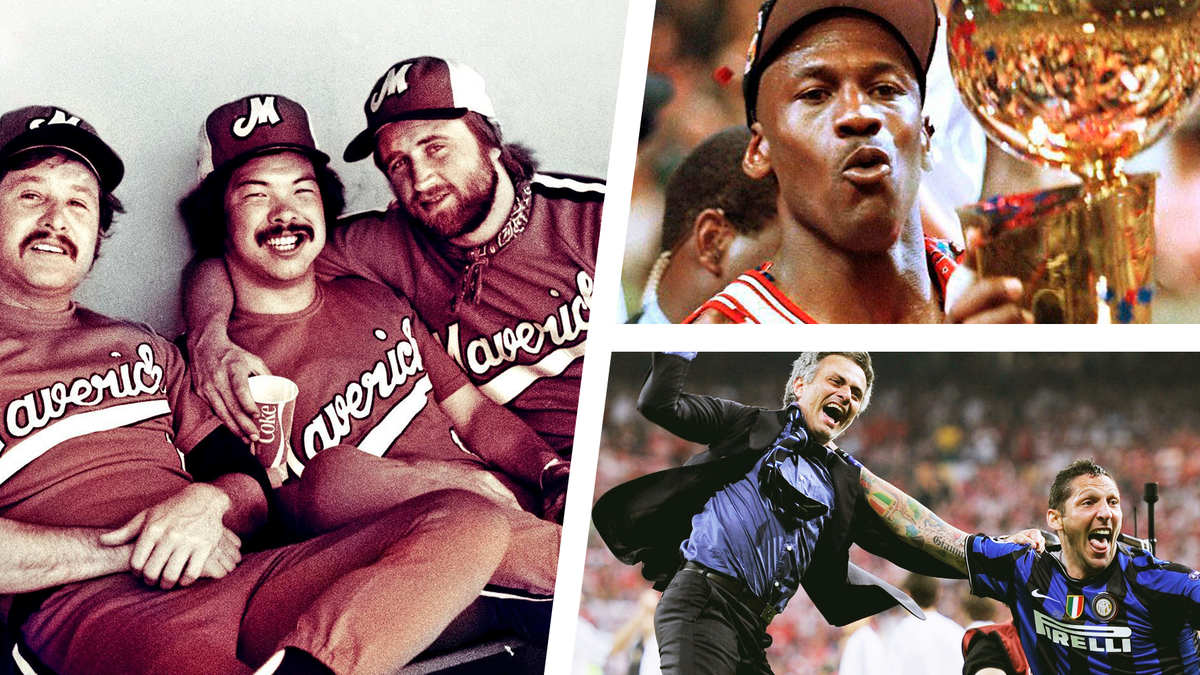
Underdog stories. Political intrigue. Forgotten footnotes in the annals of sports history. The best documentaries remind us that there’s more to sports than the box score. Sometimes, it's just about the journey getting there or the meaning of losing (though, we can all agree a first-place finish at the end is pretty damn satisfying). Whatever the case, sports documentaries are more than just a story of trimuph (or losing). There's emotion behind each scene, reminding us why we compete in the first place: the love of the game. (And yes, sometimes money). These documentaries, which cover everything from baseball to wrestling to golf, will show there's so much more to sports than just a catching a ball.
From a series about an NBA great and his legendary place in sports history to another docuseries about a group of athletes who couldn't quite snag gold, these are the 20 best sports docs streaming on Netflix now:
Last Chance U: Basketball
Similar to its predecessor, Last Chance U: Basketball focuses on young males in East Los Angeles hoping to make it to the pro ranks. Aided by a strong-willed coach, these aspiring basketball players do their best to rise to the top.
CounterPunch
This 2017 documentary follows the lives of three boxers—all of whom are in different stages of life—and their paths towards becoming champions. If you weren't interested in boxing beforehand, this film will renew your interest.
Stream it Here
Last Chance U
The playbook.
Sometimes sport documenatires aren't always about the players, but the minds behind the games: the coaches. Netflix's The Playbook is an episodic anthology of sorts, with each episode focusing on a different championship-level coach in his or her respective sport, telling the rules and tips that help make them great. This could be of particular interest to Phialdelphia 76er fans, who can get a whole episode to see how their brand new coach, Doc Rivers, operates. Also included: soccer manager José Mourinho, USA Soccer coach Jill Ellis, and more.
The Speed Cubers
The Speed Cubers is an example of a sports documentary that's not centered on one of the mainstream sports that you'd first think of—this story is about the relationship between Max Parks and Feliks Zemdegs, two of the fastest Rubik's Cube solvers in the world. The story here is rich and lovingly told, as we learn not only about the craft and competition of speedily solving a Rubik's Cube, but its a story that just will make viewers feel good. Bonus? At 40 minutes long, this is shorter than an episode of most Netflix original series.
The Short Game
This Justin Timberlake-produced flick follows a group of seven- and eight-year-old golfers as they compete in the 2012 U.S. Kids Golf World Championship. Sure, the film—which has earned comparisons to Spellbound , the classic look at spelling bee participants—will absolutely make you feel bad about your own skills out on the links, but it’s also an entertaining and often enlightening look at youth sports culture.
The Last Dance
Capturing Michael Jordan's final season on the Chicago Bulls in 1997-1998, The Last Dance takes a closer look at the legendary player and the events surrounding him and his life off the court.
Team Foxcatcher
This film tells the story of John du Pont, the wealthy heir to the du Pont family fortune and USA wrestling benefactor who was eventually convicted of murder. Steve Carrell’s turn as du Pont in the 2014 film Foxcatcher earned him a best actor Oscar nod, but this documentary digs deeper, using family footage to tell the tragic true crime story behind the late du Pont.
A Kid From Coney Island
Young people might not know much about Stephon Marbury, the basketball prodigy whose life took him from Coney Island, to the highest peaks of the NBA, to playing in China. This wonderful documentary—produced by Kevin Durant—tells his story through all its peaks and valleys, right up to the present.
The Dawn Wall
They’d spent their lives overcoming obstacles. So when rock climbers Tommy Caldwell and Kevin Jorgeson set out to scale Yosemite’s Dawn Wall in 2015, it was just one more challenge—albeit a steep one, a 3,000-foot rock face they lived on for weeks.
The Manassas Tigers high school football team had spent years turning in losing seasons. Then, coach Bill Courtney came along. This Oscar-winning documentary follows the Tigers, from an economically disadvantaged area of Memphis, as they strive for glory both on and off the gridiron.
The Battered Bastards of Baseball
Minor league baseball has provided the poetic backdrop for many a sports legend, and the tale of the Class-A Portland Mavericks of the 1970s is truly one for the ages. A team that featured future actor Kurt Russell, managed by his father, and the iconic Jim Bouton seeking a comeback after his major league tell-all essentially forced his retirement, the Mavericks earned their name—and this 2014 doc is a great dive into this true-life underdog story.
We all know about the Michael Jordans and Michael Phelps of the world. But what about the second-place finishers? The guys who come close, but miss their mark by a mere second, inch, or point? This docuseries follows those athletes you may or may not remember from sports history and how some of them have turned devastating loss into the ultimate personal victory.
Sure, football's a rough and tumble sport, but Cheer proves that those on the sidelines have it rough, too. A look inside a highly competitive cheerleading program at a college in the small town of Corsicana, Texas, the docuseries follows young athletes who are trying to balance their personal lives with, well, actual balancing as they're thrown into the air, on each other's shoulders, and risk their lives for the sport.
Bryan Fogel’s stunning documentary about Russia’s Olympic doping program won best documentary feature at the 2018 Academy Awards—a deserving accolade for a film that not only lifted the veil on the Kremlin’s state-sponsored cheating, but plays out like a real-life political thriller.
Rising Phoenix
When looking at sports—baseball and football to be specific, we sometimes forget that not every sport is inclusive to all. Thus: paralympic sports. This documentary focuses on a story often ignored: the paralympic games and how it's a beacon of inclusivity, diversity, and triumph.
Sometimes sports documentaries aren't always about the game, but the secrets behind winning. Screwball documents just that. The brilliant mind of filmmaker Billy Corben takes viewers on a behind-the-scenes look at the doping scandal that plagued the Major Baseball League and its key players.
There's risk to almost every single sport. From sprained knees to potential concussions, injuries—some permanent, some not—are expected. But bullriding...well, that's a whole other ballpark. This film showcases one man's journey as a professional bullrider from Brazil to the Las Vegas championships and his mission to earn money and respect at any means (or injuries) necessary.
After only 11 minutes you'll never look at wrestling the same way. This short documentary follows Zion Clark, a disabled boy born in foster care who finds his purpose in competitive wrestling. If you're looking for a documentary that's equally sports-focused and emotional, then this short is for you.
Think golf is a relaxing, chill sport? Let Netflix's Full Swing prove you wrong. The documentary follows various major names within the PGA Tour and shows how intense golf can really get.
.css-1fpt53b{height:1.25rem;}@media(max-width: 48rem){.css-1fpt53b{overflow:unset;line-height:1.25rem;}}@media(min-width: 48rem){.css-1fpt53b{line-height:1.25rem;}}.css-1fpt53b:before{background-color:#D2232E;color:#fff;margin-right:0.625rem;width:1.25rem;height:1.25rem;content:'';display:block;} What To Watch On Netflix
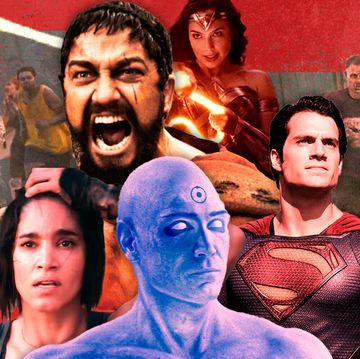
Here’s Why Netflix’s ‘Ripley’ Is in Monochrome
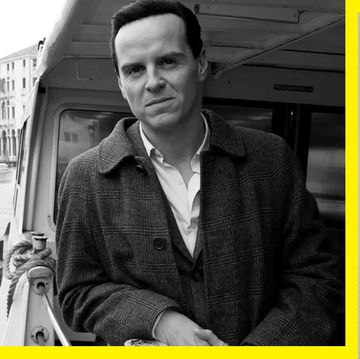
Netflix's 'Ripley' Is Part of a Much Bigger Story
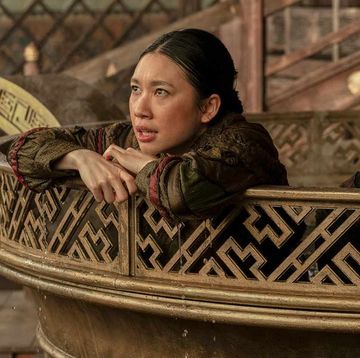
There Are Big Plans for ‘3 Body Problem’ Season 2

Jonathan Pryce Is Awesome in ‘3 Body Problem'
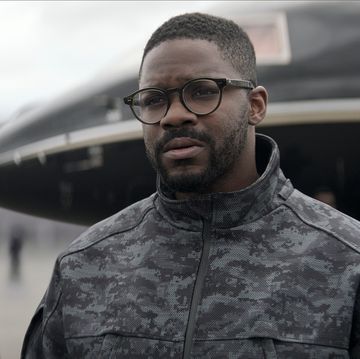
The '3 Body Problem' Ending, Explained
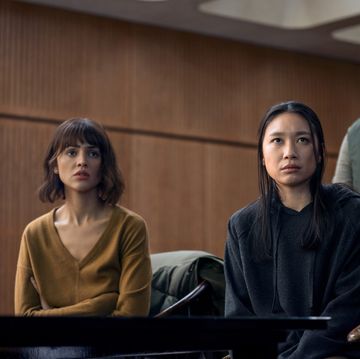
‘3 Body Problem’ Has a Cast You'll Recognize
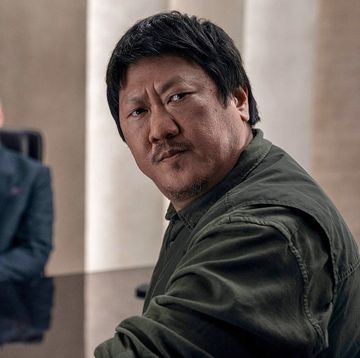
‘3 Body Problem’ Made Some Notable Book Changes
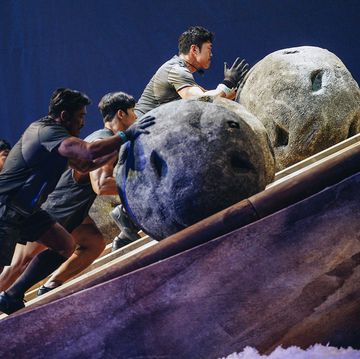
‘Physical 100’ Season 2 Is Finally Here
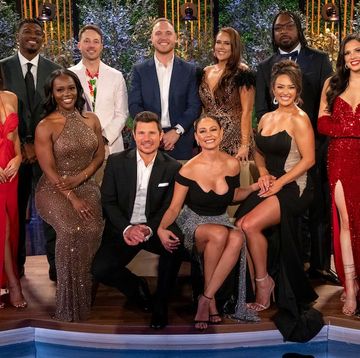
‘Love Is Blind’ Season 6 Couples' Current Status
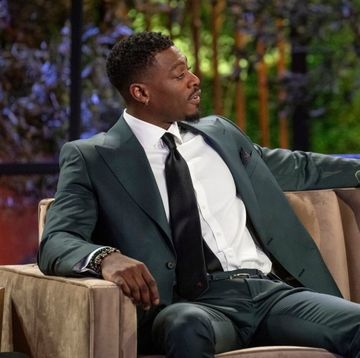
How to Stream 'Love Is Blind' Season 6 Reunion
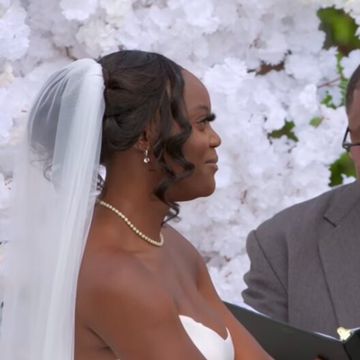
'Love Is Blind' Finally Revealed Who Got Married

Real Fan Alert! – Best Baseball Documentaries For A Chill Night Stay In
The Covid-19 pandemic has been brutal on all of us for a while now, especially for sports admirers. The fact that you cannot go out in the field and hold the bat in your hand must have been a real torture. Maybe films about baseball legends would save you from going crazy.
So here we are, bringing you some of the most extraordinary pieces of art. There are ten best baseball documentaries nominated by all avid baseball fans throughout the years. Here are some potential recommendations for you!
- Top 8 baseball bags for this season
- Top-rated baseball gloves
Baseball: A Film By Ken Burns

A series with nine seasons recap the whole baseball history from the day it was born until the modern-day as we know now. A 19-hour movie concisely wrapped up every historical event, legendary figures, and screwballs.
Going through every critical detail of the baseball story, Ken Burns depicted all the inspiring milestones that create the baseball world today. Once finished the movies, we are sure that you can talk about baseball all day like an expert.
What we like
- Relaxing movie to enjoy daily
- The whole baseball history in a nutshell
- Award-winning movie
What we don’t like
The Baseball: A Film by Ken Burns is a must-watch for all baseball newcomers . If you just start taking up baseball as a hobby and want to know more about baseball culture, this movie is the right one for you.
Read More Reviews
Ballplayer: Pelotero

The American baseball culture can drift apart from us in the present. Still, it has always been the silver lining that every Dominican reached for since they were a kid to the Dominican Republic. However, fairy tales don’t exist in real life. A dazzling world usually hides the darkest secret in it. In this case, they are lies, corruption, and dirty schemes. Ballplayer: Pelotero tells a story about a 16-year-old boy signing up for the major league without knowing bad things ahead waiting for him.
- Great storyline
- Perfect for a date night
- Heart-touching with thrilling details
- Unnecessary censored scenes
This thriller movie got everything it needs to build a romantic date night if both of you are into baseball. It works for a chill night for some binge-watching hours too!
Nine Innings From Ground Zero: The 2001 World Series

If you are looking for a movie with a nostalgic vibe to travel yourself back to the past for a few hours, the Nine Innings From Ground Zero: The 2001 World Series will be an excellent recommendation.
The movie recreated how sports, especially baseball, have saved people from the national tragedy after the tragic aftermath of 11/9. You will see 21 Shea Stadium home run, Yankees playoff recollections running back towards.
- Inspiring movies to commemorate the past
- Touching storyline
- “It’s a wonderful life” baseball version
- A little bit sad
The Nine Innings From Ground Zero: The 2001 World Series is a great way to remind us how proud to be American. A great documentary to revive patriotism!
ESPN Films – Catching Hell (Alex Gibney)

The ESPN Films – Catching Hell (Alex Gibney) is a documentary that recorded the notorious event of Chicago Cubs.
On the attempt to first attend The World Series in 58 years, Steve Bartman, a Cubs fan, caught a ball heading towards him and prevented the Cubs outfielder from doing his job. Consequently, the Cubs lost the game, also the chance to enter further in the game.
The documentary recorded all opinions from every angle in the story, the players, media members, and other audiences. Many interviews were saved, expressing how they reacted towards Steve.
- The exceptional way of exploiting extreme fan
- Objective view
- High humanitarian value
- Boring for those who don’t know the event
The ESPN Films – Catching Hell (Alex Gibney) is a suitable choice for those who want a more objective view from the Chicago incident. This documentary is also a nice suggestion for all baseball fans out there.
No No: A Dockumentary

A story surrounds a fearless pitcher, Dock Ellis, who wasn’t famous for his career path but for what he did when stepping out of the field. He fought recklessly for racial justice. Dock also worked as an activist that helped people recover from their addiction.
A movie is not only about baseball but reaches out for higher courses.
- Captivating content
- Racial justice
- Empowering messages
- Little footage
No No: A Dockumentary is for a night you want to learn something more about history than just chilling. It is good to know that we fight for the right to be what we are every day. A little empowerment during the crisis, why not?

Once the darkest secret is revealed, that is when the real monster shows its face. It is the case for Screwball. Everything began at the sunny side of South Florida when a steroid peddler, who sold his drug for Alex Rodriguez, a member of the New York Yankees.
The story was out in public and witnessed one of the biggest scandals in MLB history.
- Original documentary
- Outstanding skills in directing the films
- PG-13 alert
Screwball is a movie for if you are an enthusiastic Yankees fan and want to know all about this famous baseball team’s history.
When It Was A Game: The Complete Collection

Most baseball documentaries are created from black and white footage. But it is not the case for When it Was a Game: The Complete Collection. The series focused on baseball legends from the 1930s to 1960s with lively colored footage.
The whole process from the moment they practiced, warmed up for the game to the official games was all there with close-up shots. How precious is that!
- A spiritual paean of the baseball pastime
- Vibrant colored film
- Classic baseball movie
- Better when it comes in the triple collection version
When it Was a Game: The Complete Collection is another ideal choice for a late-night chill with the guys. Grab some popcorn and get down to it now!
The Brooklyn Dodgers – The Original America’s Team

The Brooklyn Dodgers was so historical that you can find anything about the events – from Jackie Robinson’s autograph to their travel to Los Angeles and even the notorious heartbreaks of their wealthy neighbors.
It is literally impossible to find new elements to make a documentary about this topic. However, The Ghosts of Flatbush managed to do that. It connected to Dodger fans and asked them why the team was a multicultural Brooklyn representative in the 1940s and 50s.
This documentary is so well-liked that it got all 5-star reviews on the market. So why not buy it now before it is too late?
- Original perspectives
- Inspiring storyline
- Great gift for die-hard Dodger fan
The Brooklyn Dodgers – The Original America’s Team is a must-have item for die-hard Dodger fans. It would be huge regrets not to own this in your collection.

They say recreating old materials and turning it into a new piece of art is a kind of creation. In this case, Fastball is one of them. You all know about Fastball as the most common technique done by every pitcher .
The documentary will give you a new scientific point of view about this skillset. So who is the best fastballer? And how fast is that? Try and see for yourself!
- Interesting point of view
- Easy to watch
- A great documentary regarding pitching
- Missed a lot of great pitchers
If you always have biased pitchers in the game and would love to see some exciting baseball facts, this is a killer! It is also really relaxing to end the day too.
Knuckleball!

If you are an avid baseball lover, you must have known all the hitting and batting techniques, such as Fastball. But have you ever heard of knuckleball – one of the weirdest pitches? In knuckleball, the ball flies without spin, causing it unpredictable to hit. It is harder to catch, and really challenging to hit back.
Knuckleball! was about two major knuckleballers in 2011, Tim Wakefield and R.A. Dickey. The movie was inspiring with two determined spirits which never gave up on their belief.
- Entertaining look from the coolest trick in baseball history
- Suitable for both fan and non-fan
- Epic storyline
- Not so much footage
It is safe to say the Knuckleball! is the one film that fits all, which is suitable for anybody interested in sports in general.
With the ten best baseball documentaries recommended above, we believe that all the baseball fans out there have already got enough preparation to survive through long days of lockdown.
We know it is challenging when not able to go out there in the field, but we will manage to get through it in a short time. Meanwhile, enjoy the comfort snacks we brought for you! Plus, it is fun to get to know more about your passion, isn’t it?
Stay healthy!
Women Who Travel Podcast: Criss Crossing America to Visit Every Baseball Stadium
By CNT Editors

You can listen to our podcast on Apple Podcasts and Spotify each week. Follow this link if you're listening on Apple News .
Tiffany Mathias, a self-confessed “baseball stadium chaser” (and, incidentally, Lale’s sister-in-law) recounts her quest to visit every ballpark in the United States , touring the stadiums, chatting to ushers and fans, and sampling the often eccentric local concessions—often as a solo traveler . To watch a game in a new stadium, says Tiffany, is “to be in her happy place."
Lale Arikoglu: Hi there, I'm Lale Arikoglu, and this is Women Who Travel. This week, I'm chatting to my very own sister-in-law, she's Tiffany Mathias, who is a self-described baseball stadium chaser. I'm fascinated and it's not anything that's familiar to me, so here we go.
Scoping the ballpark, chatting to fans, sampling the different hot dogs and of course criss-crossing the country on the most amazing road trips .
Tiffany Mathias: You can get to the stadium and make up your mind and talk to some ushers. There's just so much that's involved. Customer service will actually stamp a passport that says you've been at the stadium and so people collect passport stamps . You can obviously, like I did in Texas , get an usher to take you around and check out the whole stadium, and then there's times where I've just walked in and just watched a game and left.
I think the brewers gave out hoodies one year that were pretty phenomenal. Some of the giveaways are pretty great. People get really passionate about what details a greater stadium, and then you get into the mix of the culture, and the food, and the atmosphere, and the outside of the stadium going into the stadium.
The only reason we went to Kansas City was because of the stadium, so it does bring in people to the area because of the team. I know that for X amount of hours I'm going to be sitting there and just enjoying the game, just alive but happy. The adrenaline and the peaceful calmness, it just happens when you're in a good atmosphere.
LA: Tiff, you're my sister-in-law.
LA: We've known each other for many years. We spend holidays together, many summer weekends together. I know that baseball is a big passion of yours, visiting stadiums all over the country is a big passion of yours. I know nothing about baseball. You know this about me, when it's Thanksgiving, which I understand is not baseball season, but when it's Thanksgiving, I'm reading my book when everyone's watching sports. Where did this passion for baseball come from and for wanting to visit every stadium in the US? Did you inherit it or is it just something that you found on your own?
TM: I blame my mom. She's amazing. Growing up, I was running in and out of the house playing in the neighborhood and my mom always had TBS on. She watched the Braves nonstop throughout my childhood and she was just a massive fan and we grew up watching her watch baseball and then us watching baseball and my brother and I played. I played with the boys until little league.
To get to your original question, what made me start doing baseball stadiums, I was dating a gentleman and I had followed him to Toronto and he was talking about how people chase stadiums and I was like, "Oh, I think this is five or six for me," and because of where I live in central Pennsylvania, everything is within four hours, a very easy drive to get to 5, 6, 7 stadiums. And so I was like, "This could be a feasible thing for me." When it comes to chasing stadiums though, there's no true line of what's right and what's wrong. Some people are phenomenal and do 30 stadiums in 30 days and they make a true road trip out of it.
LA: Wait, that's crazy because you're zigzagging all over the country.
TM: Think about the logistics of just trying to get all over the country, getting to the stadiums, getting day games, night games, to do 30 and 30 is phenomenal. It's amazing. It took me 20 years to accomplish the 30 stadiums, so kudos to those 30 for 30 people.
LA: Look, that's just so extra.
You've done two road trips, right?
TM: Two specific road trips for it, yes.
LA: Two specific road trips. Clearly you weren't doing 30 in 30 days, but it must've been quite intense.
TM: It's crazy because some games could be a day game and then you drive to your next location and take in a night game and then you turn around and try to get to a day game and part of the reason it took me so long to get all 30 stadiums was because for the longest time I needed San Francisco and Oakland, which are like 30 miles apart, but I couldn't get the schedule to coordinate where one was home, the other one was away and it would be four days in between, and I'm like, "I can't spend four days in California waiting for the A's to come back to town."

Steph Koyfman

Shannon McMahon

Charlie Hobbs
LA: Even I know this is crazy.
TM: Yeah, I need a weekend guys. Someone come home, someone go away. Split it up so I can get it in there.
LA: You keep on using the phrase, "chaser," which I like. You get tornado chasers, you get the eclipse chasers. What are the characteristics, and this isn't necessarily to describe yourself, this is what universe of baseball stadium chasers that you have now become a part of, what are the characteristics of those people? Does it really run the gamut?
TM: It does, and that's one of the great things about being "a chaser." It can be male, female, young, old, some people might not even like baseball as a sport, they just love the stadiums because it really gives you the culture of the area that you're in and who's attending the games and what the city is like. It's just a different experience. Even in New York between the Mets and the Yankees, the atmosphere is different.
LA: You get people who genuinely don't actually care that much about the sport, but it's like they see it as an access point to a place, and for people watching, and it's like a cultural moment rather than a sports moment.
TM: Yeah, there's a few of them. A majority of us are passionate about the actual game of baseball, but you do get into a lot of arguments about which stadium is the best, which stadium is the worst. Generally you get the same consensus, top three stadiums.
LA: Wait, what's considered the top and what's considered the bottom? I'm interested. Can you reveal this?
TM: Yeah, so for me personally, PNC Park in Pittsburgh is just a phenomenal stadium, as well as the San Francisco Giants. The way that the baseball stadium is laid out within the city, at least in Pittsburgh, you're sitting in the stadium but you're looking at the skyline of the city and it's perfection, as well as San Francisco, maybe it's because it has the Bay right there, but just the way that it's laid and positioned within the city, it's just phenomenal. The bottom, everyone that you talk to that's a baseball chaser will say, "Oakland number 30," but they're 29 for me. I am not a big Tampa fan. I love that they have the Stingrays in the stadium, but for me it's just so old, and cold, and dilapidated.
LA: Where do you think what city, or town, or stadium has the best energy when it's a game? Which is the one that's just a ton of fun?
TM: Oh, there's so many. Washington D.C. does it really well. The Metro lets you out right near the stadium. There's a ton of bars and areas that are just having tailgating going on and it just brings a ton of energy. Milwaukee does cornhole in the parking lot and there's a ton of, almost like a football game weekend where people are just going early and setting up. There's Cincinnati and even San Francisco where you walk great distances to get into the stadium. It's almost how soccer is, where you're getting groups of people and you're walking in herds to the stadium. There's a lot of energy that comes with that as well.
LA: Yeah, so when you were describing it, I was thinking about going to football matches in London and so much of actually the experience is walking with all the fans to the stadium and you go past people selling knockoff merch and there's food stands and there's drunk people and all that stuff. It is part of the experience.
TM: I would be remiss if I didn't mention Detroit is one of my favorite ballparks. It's probably in the top five, but I think it's also because that energy is there and they embrace the other sports and they're all in the same area of town, and there's a lot of tailgating and just pure energy that just comes from being in that area as well.
I have been to all 30 in my head because I've been to the Rangers, but had I not visited them last year, somebody would say to me, "Oh, you haven't been to the new park. You were at the old parks. You haven't been to all 30. Have you been to all 30?"
LA: Well then ultimately you're doing it for yourself. You're not doing it to prove something to someone else or some person on the internet who's in one of these groups that says, "Oh, you didn't visit the new stadiums so you don't count." This is for you. You love it. It sounds like you have to visit during a game, right?
TM: For me, for it to count.
LA: You can't just show up and just take a peek and say you've seen it.
TM: Do the tour? No.
LA: Are there any other rules of the road when you are visiting where you're like, "These are all the notes I need to hit to be able to get a full experience of this stadium."
TM: For me, you have to go into the stadium. One of my favorite experiences, my husband has joined me for a lot of my pursuit of the 30 stadiums and one of my bucket list items was to go back to Toronto, but I wanted to watch the game from the Marriott hotel that sits in the outfield. Your window opens in your hotel room and you are in the stadium, so you're watching the game from your hotel room, they have seats, you can bring in food. It's phenomenal. It's just a different experience.
LA: This is lavish.
TM: Yeah, the sounds and the atmosphere of the baseball stadium is inside your hotel room. It's something I wanted to do, but because my husband had never been to a Blue Jays game, I said, "We're staying the night, but the next day we have to go in so you can count this as one of your stadiums," because even though the hotel's connected, I can't consider it a game for you.
LA: Obviously I know your husband Devin very well. He is the brother of my husband. I know that he loves sports very much. He wasn't chasing baseball stadiums before you guys met, as far as I'm aware. How did you get him on board? Was he like, "This is a wild characteristic of you?" Or was he just like, "I'm so game."
TM: He loves it, but for the most part, one of the road trips was when we went out and did a majority of the California teams, but we'll do it in conjunction with his passion, which is going to U2 concerts. We will find a U2 concert, and fly in, and then plan a baseball game around the same time the concert is. We'll do a twofer to satisfy his passions, but at the same time, taking in a game.
LA: And it's like you've both got your obsessions and you accommodate both. I have to say, I do disagree on his U2 obsession, not the biggest fan.
Coming up, what to wear when you want to be loyal to your team, but not annoy everyone you are meeting.
When someone goes to see their team play, they usually wear their team's shirt, or hat, or something. You're going to see every team play. What do you wear?
TM: I'm a loyalist to the Braves. I have my old Braves hat that I've had for probably twenty-plus years, but for a while I had a T-shirt that just had the Major League Baseball logo on it, so if you don't know the logo, it's just a batter swinging and then there's a baseball down in the logo and it's red, white, and blue. My shirt, instead of the baseball had a little heart on it, just to show that I was there for the love of the game and for the actual organization.
One time I had a tank top for a few seasons where the shirt itself was glittery and it was a baseball, so it had the baseball red stitches going down it and it was just a white tank. It was just, you wear stuff that shows the love of the game. If I like a shirt when I'm there, I'll buy it, because I do visit the stores inside. If I'm there to see the Red Sox play the Yankees, obviously that's a very heated rivalry, so I'm not going to wear...
LA: You're not taking a side.
TM: Yeah, I'm just going straight baseball. I just love baseball guys.
LA: Neutral. You're like, "I'm neutral. I'm just here to watch."
TM: Go teams.
LA: Are there stadiums where you're like, "This food is actually a real insight into the culture of this place," or it's just actually stellar?
TM: I would say food is a pretty huge factor when it comes to stadiums. I will seek out a hot dog just because I feel like that's how I rank the stadiums.
LA: Wait, I love this. And our social media director, Mercedes Bleth is going to be so obsessed with this. Every city she goes to, she eats a hot dog and she ranks them. You guys should talk.
TM: Yeah, it's amazing. Pittsburgh just came out with this, I think it's a bratwurst with some pierogies on it. Texas, they do barbecue and you make sure you pick that up when you get there. Baltimore, make sure that you get some crabs or some fish fry, whatever, Old Bay, whatever you can put Old Bay on, Baltimore wants you to be there for it.
LA: Oh my God.
TM: It's an experience in itself just doing the stadium foods. It's really great to see the variety that they're offering and how they cater to the fans that are coming in.
LA: Clearly that was a lot of driving time, a lot of highways, a lot of road stops, but you are from the East Coast and you were getting to be in different parts of the country. What sort of flashes of America were you getting? I just feel like this whole thing must be giving you such a better understanding of this country.
TM: Yeah, you get to see all the great stuff. You get to see is it wall drug? You see billboards for miles for this pharmacy and you finally go and it's ginormous, but it's such a tourist trap, or I've seen a Jolly Green Giant, or the world's largest basket.
LA: Wait, we had someone on here last year who said they saw the world's largest chair at a roadside stop.
TM: I don't know that I've seen the chair, but I believe the basket is in Ohio and I think it's a Langenberger basket.
LA: America's so weird. I just [inaudible 00:15:00]
TM: It's amazing. Yeah, there was some kind of corn maze that I saw on the way. There's just historic landmarks that it's not too far off your path, so you just pop off an exit, go and see it, and then pop back on. What I like about going in and seeing a stadium and knowing you have some free time to explore, you find places that just you might've had the best meal of your life and you're just like, "Why is this in this small random town that I don't even remember the name," or I bought the pint glass from it and now I have it and it reminds me of just being on the road and just having that freedom and just having a supportive partner that says, "Hey, this is your passion. How do we make it happen?"
LA: You mentioned a big glass. Are you collecting souvenirs on these trips? Because I will say that your house is very, it's not filled with knickknacks, it's not filled with some, as far as I'm aware, some secret room filled with baseball stadium paraphernalia and kitsch picked up from the side of highways. Do you reign yourself in?
TM: I initially started, this is going to age me, when I first started doing it, I had the actual ticket stub. It was when you actually had a ticket that they ripped at the gate. Obviously technology destroyed that for me. I know that there are other people that collect dirt from the field. They'll go down and ask an usher, someone to put it in a little vial, and I'm super jealous about those people.
LA: I'm obsessed.
TM: They're so ingenious to do that. It's incredible.
LA: Wait, how are they organizing the dirt? They must label them and archive them.
TM: They do, and they put them in a shadow box or somehow they display it in their house and it will have a little tiny vial and it'll have the dirt from either the infield or the warning track and it'll say, "Wrigley Field," or PNC, or whatever baseball stadium it is, and I think it's just genius.
LA: People are amazing.
TM: It's just next level and I love everything about it.
LA: After the break, befriending the ushers and the eccentric forms of entertainment that can capture a place.
I have a fun little question. You have, "Take me out to the ball game," is the song that I think of as getting played in baseball games. Do you get other versions? Do different teams and different places have their own music or go-to classics that they blast?
TM: Sometimes. They generally do Take Me Out to the Ballgame for the seventh inning stretch. If there's a variety or a version of it's they're trying to get the crowd entertained in between innings, so they'll put three songs up and have the crowd vote on what song they want to hear. I think more specifically, and not necessarily music, but there are, I'll call them character races and I love them.
LA: Wait. Explain.
TM: Washington D.C has, and it's my favorite, it's the presidential race. They have, and this is going to be terrible, I think it's Lincoln, Washington, Kennedy and Roosevelt all come out and run the edge of the wall or the warning track. Pittsburgh has a pierogi race. Milwaukee has a sausage race.
LA: When you say sausage race or pierogi race, people dressed as sausages or pierogies, are they carrying them like an egg and spoon race? Are they...
TM: It's a full-on costume.
LA: Incredible. Incredible.
TM: They'll have some indicating factor, most likely a color, where the pierogi is purple, orange, pink and red. I always pick Lincoln for the record, but there's different races that each stadium will put on to engage the crowd. I think there's one stadium, and I don't even know if it's baseball related, where there's a guy that takes off and then another guy chases him. I think he's like some kind of crazy world renowned sprinter because nobody ever wins.
Speaker 3: Call the Brooklyn Cyclones box office for more information or call 718-37-BK.
LA: When I've gone to these Coney Island Cyclones games, they always have some sort of entertainment. They've definitely had some sort of version of a race. They have themes every weekend throughout the summer. One they do every year that sells out really quickly is they do a Seinfeld one and they have an Elaine costume contest. You have all of these women who come dressed as Elaine and then they go out on the field and they have to compete to do the best Elaine dance.
TM: That's amazing.
LA: I don't know if they win anything or if it's just sort of the glory of doing it, but it's the most New York thing ever. It captures the place.
TM: There's giveaways the stadiums do. There's themes where it's Star Wars night or Bark in the Park where you can bring your dog.
LA: Okay, now sounds like my kind of game.
TM: Yes. You want to go to bark in the park.
LA: That's the one I want to go to.
TM: But there's great themes and great giveaways. I think the Dodgers gave coasters, really great coasters. We still have them. We use them constantly.
LA: You've created such a picture for me of what these events are like. There's such a community to them obviously that sport's so wrapped up in that and it's so colorful and eccentric. It really does feel like it shows a lot of the eccentricities of America and the things that are so endearing about it. You've seen such a breadth of America by doing this. It's more than I think most people who live and have grown up here. It is really cool. Who do you make an effort to talk to when you're in the stadiums? Is it people in the crowd, people you're sitting with in the bleachers? Is it the ushers? Who are you talking to try and get a feel for the place?
TM: It depends on if I've traveled alone or if I've traveled with somebody. In Dallas, the Rangers just built a new stadium and I had been to the one previously, but I was on a work trip and I went, and I went up to the usher and said, "I've never been to the stadium. It opened during 2020. What am I missing? What are the highlights?" And he gave me a full tour and it was amazing. I saw places I wouldn't have seen regularly had I just taken in this ballpark myself. Baseball fans are just so passionate about being there and about their teams that it's just so easy to engage in conversation with anybody there.
In Arizona, there was this couple sitting in front of us and they had this really thick, well-loved worn book and they were writing in it, and I tapped them on the shoulder and I was like, "What's going on here?" And for 30, 40 years, they had kept every home game in that book. They were keeping the score and it was just like this great story. And the only reason they ever missed a game is they had to go to a funeral and it's the only game they've ever missed.
LA: You travel a lot for work zipping across the country, sometimes you've been trying to tack on a baseball stadium while you've been doing it. I know that you are used to traveling alone a lot. It sounds like this has been a really nice way of connecting yourself with people when you are traveling solo.
TM: I'll go to a conference and if I know I'm in town and there's a game, I'll take an Uber or something, or I'll convince somebody from the conference and say, "Hey, I'm going to go over and check out Kansas City today. Do you want to go take in the Royals game?" And they'll say yes, and we'll go, or they'll say no, and then I'll quickly jump online. There's a Facebook group that I'm in and I'll ask some questions. "Where does Rideshare pick up?" As a solo woman, you want to make sure that you're not walking really far by yourself, and the games get out at 10 o'clock, 10:30 at night, and you're like, "Hey, where am I going in this strange neighborhood that I have no idea where I am?"
LA: Because stadiums are often in random parts of... They're rarely just in the center of a place. They're often positioned in slightly odd. They're not going to be where most of the hotels are, for example.
TM: Right. Because they need acreage to put the stadium in the parking lots and any van fare that goes around it. As a solo traveler, you just are a little bit more aware of who's around you, what's happening. Sometimes you have to leave a little bit early just for logistic purposes of safety.
LA: If there's someone listening who shares a similar obsession but feels like maybe it's a bit much or they seem intimidated by the idea of becoming a so-called chaser, what's your advice for them?
TM: My first advice is to find whatever social media platform you're on and just do some research. There's so many people that are already doing what you're wanting to do or a version of it that you can find people who have the same passion and are willing to share the insider information that you're wanting to know. I'm on a Facebook group that just happens to be called Ballpark Chasers, and there's a lot of fun debates, and insider information, and you can just easily say, "I'm going to X today to see the game. What should I be looking for? What should I do?" And then you can get to the stadium and make up your mind and talk to some ushers.
We've been to the Hall of Fame. I've gone to the Louisville Slugger Baseball Museum. There's other things that you can do that's not just necessarily going to a stadium, but I'm definitely happy that I checked off all 30.
LA: When you are sitting in the stadium, whether you are with friends or you are there by your own, which is really its own experience to go watch a sports game by yourself, but how does it make you feel? How do you feel in the stadium when you're there?
TM: You're there with the adrenaline, and you're loving it, and you're hyped up, and you're excited to see a game, but it's also a feeling of home where it's just like a calmness where you can just... For me, I like to sit back, take in the game, have a beverage, maybe it's peanuts or the hot dog that I'm seeking, but I know that I can sit down and relax and just take in the evening and I don't have to worry about having to have all the external noises of just life in general because I know that I'm in my happy place.
LA: Tiff, this has been so fun. You've covered some crazy ground.
TM: Thank you. I feel like I didn't get to half of it.
LA: Well, your knowledge is just, it's infinite. It's amazing. I feel like we've never got to talk about it in this way before. It's really great.
TM: I t's such a passion of mine, so thank you for realizing.
LA: Really wonderful.
TM: Thanks. It's easy to talk about something you love.
LA: Where did the mic come from?
TM: Devin. I was like, "Hey, can I use your mic for Lale’s thing today?"
LA: Well, it was perfect. It was really great. It's excellent.
And next week, only 15% of journalists are women, and that's in 2024. We meet three who travel the world to conflict zones and make pictures that are both shocking and intimate. See you then. I'm Lale Arikoglu, and you can find me on Instagram @lalehannah .
Our engineers are Jake Lummus, Nick Pitman, and James Yost. The show's mixed by Amar Lal. Jude Kampfner from Corporation for Independent Media is our producer. Chris Bannon is Conde Nast's, head of Global Audio. See you next week.
Brown: New FX, New York Times documentary sheds light on drug use in horse racing
Hopefully, next week of Kentucky Derby 150 is nothing like what Churchill Downs , and the sport overall, endured this time last year.
Not even the "fastest two minutes in sports" could overshadow the rash of horse deaths that not only preceded the race but had more than a handful of people praying it would not happen during the Run for the Roses.
An investigation did not find a singular cause for the 12 horse deaths. That area of uncertainty is where a sobering documentary that will air on FX Friday at 10 p.m. picks up. “ The New York Times Presents: Broken Horses ” runs about 64 minutes and takes a deep dive into why drug use has exploded in the sport and the role it plays in undermining the health and safety of horses.
How to avoid more clusters of horse deaths in the future will, in part, be determined by how willing the industry is to change what drug use is acceptable.
It’s not just blatant doping and use of banned substances that’s at fault. Most trainers aren’t like Jorge Navarro , who all but begged to be busted. The documentary tells how he brazenly drugged horses to perform to the extent that the Crocs he wore had “#Juice Man” colorfully pinned onto them.
Navarro and the veterinarian he worked closely with, Seth Fishman , were among the dozens convicted and sentenced in 2021 after a federal investigation into doping. It clearly didn’t deter everyone in the sport, but it did help in the final congressional push that led to the creation of the Horseracing Integrity and Safety Authority (HISA) .
There continues to be an overreliance — some might even say abuse — of items on HISA’s controlled medication list to mask pain and minor injuries. That, in turn, puts horses at greater risk for catastrophic injuries.
The documentary also highlights last year’s death of Havnameltdown, a Bob Baffert-trained horse , as an example of overmedicating.
Havnameltdown threw his jockey Luis Saez in turn two at Pimlico Race Course and had an injury that caused it to be euthanized on the track before Baffert won with National Treasure in the 2023 Preakness Stakes .
The New York Times had two veterinarians examine the necropsy in the documentary. They found Havnameltdown had lesions in his fetlock joints in all four limbs, which occurs when a repetitive injury wears away the cartilage.
Both veterinarians agreed that red flags were ignored and he was medicated for the purpose of being able to run.
“This horse was a disaster waiting to happen,” Dr. Kate Papp said. “And it was only a matter of time. Havnameltdown should not have been racing that day. Absolutely not. Under any circumstances.”
What’s happening in horse racing now is similar to what Major League Baseball experienced during its “ steroid era ,” the difference being horses aren’t actively seeking out performance-enhancing drugs.
Trainer Chad Brown , who has one of the Kentucky Derby favorites, Sierra Leone , told The Courier Journal that change is uncomfortable, but it’s worth exploring to position the sport in a better place.
“Everyone has to sacrifice some level of comfort with adjusting if we really are serious,” Brown said. “Not every idea is going to come out the way it was thought up, but if we’re not all collectively at least attempting, within reason, to apply some practical, positive changes, then there’ll be no progress.”
No progress is unacceptable with the stakes as high as they are in this moment. HISA implemented its anti-doping policy almost one year ago, but as Times reporter Joe Drape warned near the conclusion of the documentary, the organization itself can’t solve horse racing’s drug problem.
“It’s ultimately up to the people in the sport themselves,” Drape said. “They’re either going to play right, have integrity, quit cheating and care for their animals, or the sport of horse racing is going to go away.”
Reach sports columnist C.L. Brown at [email protected] , follow him on X at @CLBrownHoops and subscribe to his newsletter at profile.courier-journal.com/newsletters/cl-browns-latest to make sure you never miss one of his column s.
- International
Day 8 of Trump New York hush money trial
By CNN's Kara Scannell, Lauren Del Valle and Jeremy Herb in the courthouse
Graff says she assumed Stormy Daniels' visit to Trump Tower was regarding "Apprentice" casting
Graff says she was under the impression a Trump Tower visit from adult film star Stormy Daniels had to do with Trump's interest in her as a potential cast member for "The Apprentice."
"You understood she was there to discuss being cast for 'The Apprentice'?" Necheles asked.
"I assumed that," Graff says.
Daniels said in her recent documentary that she had conversations with Trump about potentially appearing on "Celebrity Apprentice."
This post has been updated with additional information from Stormy Daniels' documentary.
After questions about Trump's interest in the casting of "Celebrity Apprentice," prosecutors object
After a series of questions about Trump's interest in the casting of "Celebrity Apprentice," prosecutors object. Lawyers are at the bench.
Necheles next brought up Graff's mention of seeing Stormy Daniels at Trump Tower.
"I vaguely recall hearing him say that she was one of the people that may be an interesting contestant on the show," Graff testified.
Trump's attorney went into a line of questioning about how Trump was very involved in finding contestants for the "Celebrity Apprentice," confirming with Graff that Trump looked for "colorful" or "interesting" candidates to cast.
"He would vocalize" sometimes people Trump was interested in having as "Apprentice" contestants to members of his staff, she said.
Trump is smiling as Graff describes working with him
Trump is smiling and watching Graff speak as his attorneys begin to ask questions of his former longtime assistant.
"I never had the same day twice in all that time," Graff says, as she describes her time at the Trump organization. "It was a very stimulating, exciting, fascinating place to be."
Asked if Trump respected her intelligence, Graff says she wouldn't have worked there for 34 years if he didn't. Trump laughed at the comment.
Asked if Trump was a good boss, Graff says, "I think that he was fair, and, what’s the word I’m looking for, respectful boss to me."
"Sometimes he would peek his head in and say, 'Go home to your family,' which I thought was very thoughtful of him," Graff testifies.
Graff says Trump invited her to the inauguration and she got to sit up close. She says it was a "unique" experience to sit on the platform with her husband.
She testified that "The Apprentice" elevated Trump to "rock star status."
Trump attorney Susan Necheles is now asking questions
The prosecutor has wrapped her direct examination of Graff.
Trump attorney Susan Necheles is now beginning her cross examination.
Jurors are seeing who Trump met with over 3 days in January 2017, according to his calendar
Hoffinger shows calendar entries for Trump from January 16 to January 19, 2017, from the Trump Organization appointment calendar, including an entry for a "teleprompter practice session" on the 25th floor of Trump Tower on January 16, 2017.
Another entry shows Trump had an appointment with Ainsley Earhardt from Fox and Friends on January 17, 2017.
On the same day, he also had an appointment for a photo shoot for Mike Allen for the Washington Post.
Graff confirms that the entries show Trump was working at Trump Tower at that time.
According to the calendar, Trump was expected to be wheels up from LaGuardia Airport to Reagan National Airport on January 19, 2017, the day before the inauguration.
Trump continues to falsely claim he can’t comment on his criminal trial as he rails against gag order
From CNN's Kate Sullivan
Former President Donald Trump on Friday continued to falsely claim he cannot “comment on” or “answer questions” about his New York criminal hush money trial as he railed against the gag order from Judge Juan Merchan.
Trump frequently comments on and answers questions about the trial. The gag order prohibits Trump from publicly discussing witnesses, jurors, prosecutors, court staff or family members of prosecutors and court staff.
Speaking in the third person, Trump posted on Truth Social, “45th President Donald J. Trump is again the Republican Nominee for President of the United States, and is currently dominating in the Polls. However, he is being inundated by the Media with questions because of this Rigged Biden Trial, which President Trump is not allowed to comment on, or answer, because of Judge Juan Merchan’s UNPRECEDENTED AND UNCONSTITUTIONAL Gag Order.”
“His Opponents have unlimited rights to question, but he has no right to respond. There has never been a situation like this in our Country’s History, a Candidate that is not allowed to answer questions. Even Crooked Joe Biden is talking about the Sham Case, and others inspired by his Administration. We request that Judge Merchan immediately LIFT THE GAG ORDER, so that President Trump is able to freely state his views, feelings, and policies. He is asking for his Constitutional Right to Free Speech. If it is not granted, this again becomes a Rigged Election!” Trump posted.
Merchan has scheduled another hearing on the gag order for next Thursday.
Graff recalls seeing Stormy Daniels in the reception area at Trump Tower before Trump ran for office
Graff recalls seeing Stormy Daniels in the reception area at Trump Tower before Trump ran for president.
Graff confirms she kept contact info for Karen McDougal and Stormy Daniels
Graff confirms that two contacts she maintained at the Trump Organization were for Karen McDougal and Stormy Daniels.
Partially redacted exhibits in court show a contact entry in the organization's system for Karen McDougal, with a phone number, email address and two addresses.
Graff confirms she believes she created the contact for Trump.
The next contact Hoffinger shows in the Trump Org system is listed as "Stormy." It just lists a cell phone number.
Graff confirms that the Stormy contact was Stormy Daniels.
Analysis: Why Rhona Graff is a "valuable" witness
From CNN's Kaanita Iyer and Ramishah Maruf
Prosecutors have called Rhona Graff, Donald Trump's former longtime assistant, to the witness stand.
Former National Enquirer publisher David Pecker in his testimony Tuesday described sitting in Trump's office Graff walked in and gave him invoices and checks to sign.
CNN previously reported in 2022 that Graff was subpoenaed as part of the separate New York attorney general's investigation into the Trump Organization’s finances.
CNN analyst Gloria Borger said that Graff was very close to Trump.
Graff can also reveal how the Trump organization worked, Borger said, and even provide a glimpse into Trump's life and speak on the relationships between Trump and his children.
Assistants also make powerful witnesses because they can see who is coming in out of the office.
Please enable JavaScript for a better experience.
Jim Hill Senior High baseball team makes MHSAA playoffs

JACKSON, Miss. (WLBT) - The Jim Hill Senior High School baseball team is headed back to the MHSAA 6A State Championship playoffs for a second straight season.
After a 10-0 start to their season, the Tigers were able to finish the regular season with a 16-9 overall record - according to MaxPreps - and qualify for postseason baseball.
Jim Hill will face George County High School in the first round.
Last year, Jim Hill won their first playoff game in over 10 years and will look to embark on more history during the 2024 season.
The Tigers will travel to play the Rebels in a three-game series, beginning on Friday at 7 p.m. The second game is scheduled to be played at 12 p.m. at the VA Baseball Complex in Jackson the following day.
If necessary, the third game will be played at George County High School.
Want more WLBT news in your inbox? Click here to subscribe to our newsletter.
See a spelling or grammar error in our story? Please click here to report it and include the headline of the story in your email.
Copyright 2024 WLBT. All rights reserved.

4 teenagers die in high-speed chase after trooper uses PIT maneuver

Two arrested after stealing $10,000 of copper wire in Mississippi

Man mauled to death by his pit bull, police fatally shoot dog inside apartment

Former NFL player found dead in his New Jersey home at 28

One injured after officer-involved shooting in Mississippi
Latest news.

Tougaloo College hosts final GCAC championship before the conference’s rebrand

Multiple Bulldogs, Rebels get drafted in day three of the NFL Draft

Ridgeland football coaching connection spans a decade

Northwest Rankin graduate selected by Jacksonville in NFL Draft

A.J. Brown inks extension with Eagles, becomes highest paid receiver in NFL

IMAGES
VIDEO
COMMENTS
He is isn't a major league superstar like Anthony Rendon, George Springer or Mike Trout, accustomed to the wrath of impatient fans. He is an eight-year-old boy and the disgusted fan is his ...
ESPN Films has emerged as one of the most celebrated producers of documentaries in recent years, with O.J.: Made in America and The Last Dance both earning critical acclaim and a slew of awards, including an Oscar, a Peabody Award and three Emmys between them.Last year, the studio premiered its new seven-part documentary series The Captain, about New York Yankees great Derek Jeter, who was ...
Ken Burns' Baseball (1994) Any list of the best baseball documentaries must include Ken Burns' Baseball, a fascinating nine-part, 19-hour film on the history of baseball from its 19th-century origins up to 1990 (a 2010 addendum, aptly named the "Tenth Inning," covers the 1990s and early 2000s).
WATCHING ON A LAPTOP OR TV IS RECOMMENDED. IF WATCHING ON A CELL PHONE, HEADPHONES ARE RECOMMENDED (audio may not have rendered completely in parts of some i...
Local Travel Teams: For beginners starting their journey through travel baseball. The games they play are mostly local or within a close driving distance. Practices only happen a few times a week, and games during the weekend. 2. Regional Travel Teams: For players with more experience and higher skill levels.
Knuckleball! is a fascinating documentary that captures the unique nature of baseball's most mysterious pitch: the knuckleball. Released in 2012, the film presents an in-depth exploration of this unconventional technique by following two Major League Baseball pitchers who have mastered it - Tim Wakefield of the Boston Red Sox and R.A. Dickey of the New York Mets.
The Battered Bastards of Baseball (2014) Chapman and Maclain Way 's The Battered Bastards of Baseball tells a tale that puts the independent and go-getter nature of baseball into the spotlight. In 1973, famous Hollywood actor Bing Russell started the only independent baseball team in America at the time, the Portland Mavericks.
The specific answer varies, but the typical range of cost for participating in travel baseball is between $500 and $2,500 per year. That said, you can end up spending a lot more than that. Back in 2011, CBS News reported that one Georgia family paid $4,000 per year for their 9-year-old son's travel team.
The colorful true story of the Portland Mavericks, a scrappy, independent baseball team of underdogs started by actor Bing Russell in the 1970s. Watch trailers & learn more.
Currently streaming on HBO, Babe Ruth is known for more accurately representing baseball's inaugural power-hitter than the 1992 biopic starring John Goodman did.. Narrating over rarely seen archival footage, Liev Schreiber (Ray Donovan) helped hook audiences with his distinctly deep delivery that served as ample audition for future voicework.If The Sandlot was not enough for '90s kids to ...
Fastball: Directed by Jonathan Hock. With Kevin Costner, Derek Jeter, Denard Span, Craig Kimbrel. With Kevin Costner narrating, lead a cast of baseball legends and scientists who explore the magic within the 396 milliseconds it takes a fastball to reach home plate, and decipher who threw the fastest pitch ever.
Last Chance U: Basketball. Similar to its predecessor, Last Chance U: Basketball focuses on young males in East Los Angeles hoping to make it to the pro ranks. Aided by a strong-willed coach ...
View on Amazon. If you are looking for a movie with a nostalgic vibe to travel yourself back to the past for a few hours, the Nine Innings From Ground Zero: The 2001 World Series will be an excellent recommendation. The movie recreated how sports, especially baseball, have saved people from the national tragedy after the tragic aftermath of 11/9.
With 10 ballparks down and 21 to go, two friends continue their baseball road trip across America. Learn more about this documentary series at http://basecra...
The Saint of Second Chances Documentary: Plot, Release Date, and Trailer - Netflix Tudum. Directed by Jeff Malmberg and Academy Award winner Morgan Neville, this sports documentary tells the story of baseball innovators Bill Veeck and Mike Veeck.
Travel Ball documentary. For those interested, should be a good dsicussion on travel ball/year round baseball. Watch FOX Sports and view live scores, odds, team news, player news, streams, videos, stats, standings & schedules covering NFL, MLB, NASCAR, WWE, NBA, NHL, college sports & more! [My son's team is one of the two featured.]
The colorful life and career of quotable baseball great Yogi Berra shines brightly in this documentary featuring insider interviews and archival footage. Watch trailers & learn more.
LA: Tiff, you're my sister-in-law. TM: Yes. LA: We've known each other for many years. We spend holidays together, many summer weekends together. I know that baseball is a big passion of yours ...
'New York Times presents: Broken Horses' is a new documentary set to debut Friday on FX Network and shows how drug use in horse racing led to deaths. Your inbox approves Men's coaches poll Women's ...
Walking tour around Moscow-City.Thanks for watching!MY GEAR THAT I USEMinimalist Handheld SetupiPhone 11 128GB https://amzn.to/3zfqbboMic for Street https://...
Graff says she was under the impression a Trump Tower visit from adult film star Stormy Daniels had to do with Trump's interest in her as a potential cast member for "The Apprentice."
JACKSON, Miss. (WLBT) - The Jim Hill Senior High School baseball team is headed back to the MHSAA 6A State Championship playoffs for a second straight season. After a 10-0 start to their season, the Tigers were able to finish the regular season with a 16-9 overall record - according to MaxPreps - and qualify for postseason baseball.
That documentary was followed by a two-part film on the Russian prison system whose sources included Oleg Navalny (the brother of opposition leader Alexey), renowned prisoners' rights advocate Olga Romanova, and Pussy Riot member Maria Alyokhina. ... who is wearing a tracksuit and a baseball cap embroidered with the word "Svoboda ...